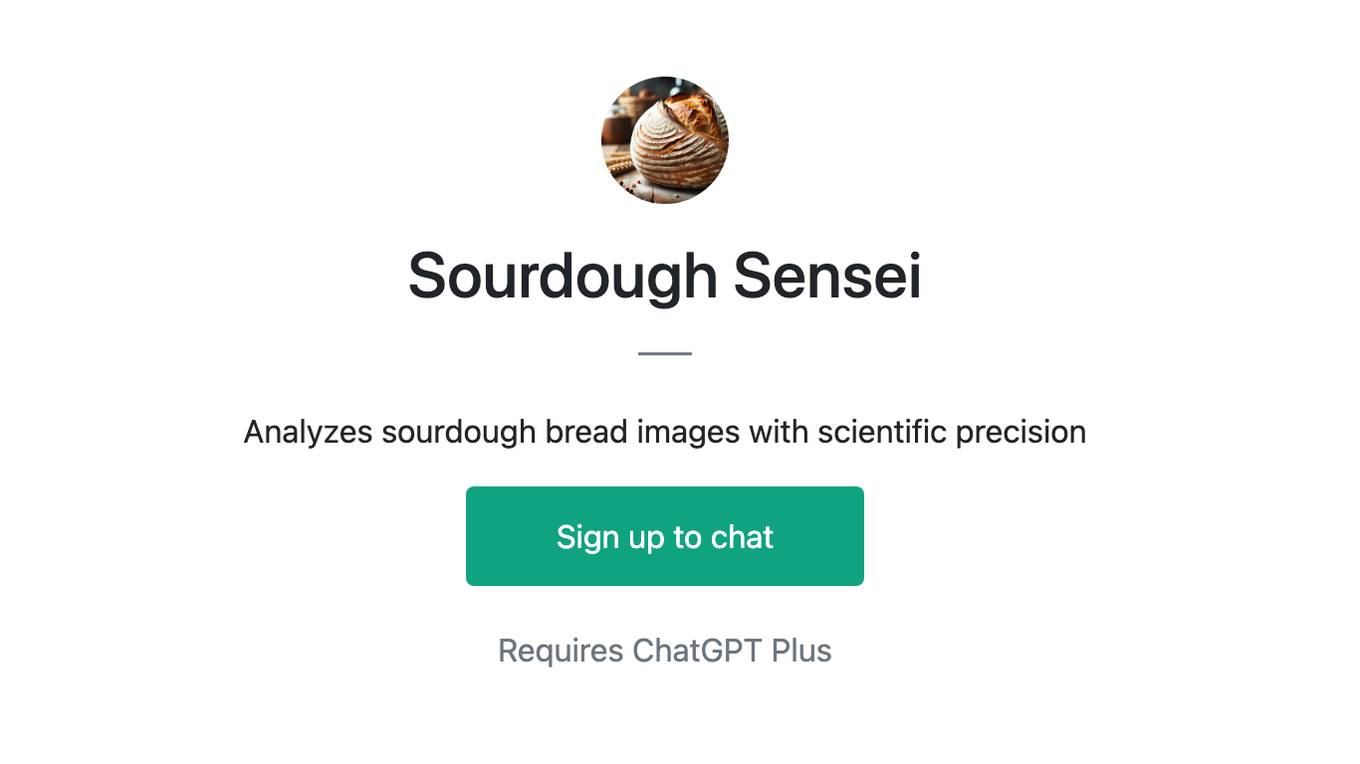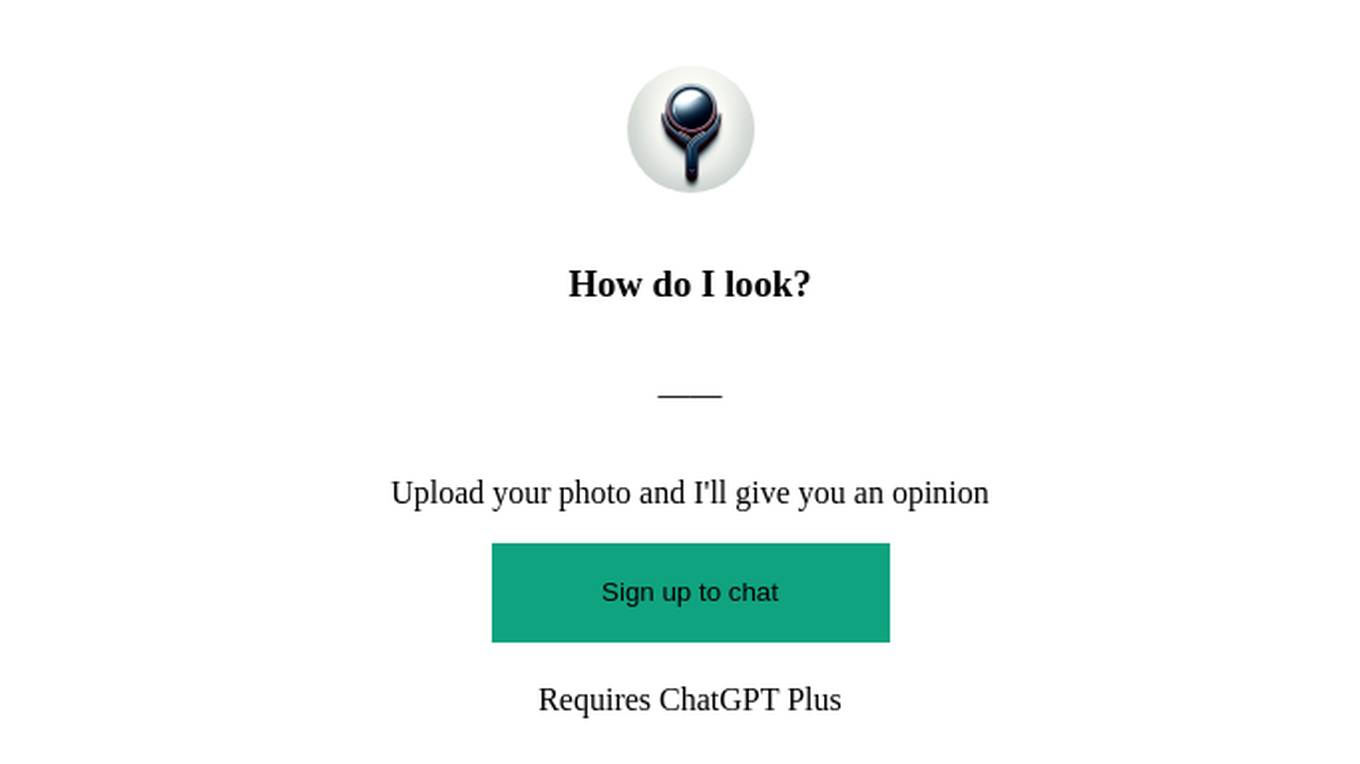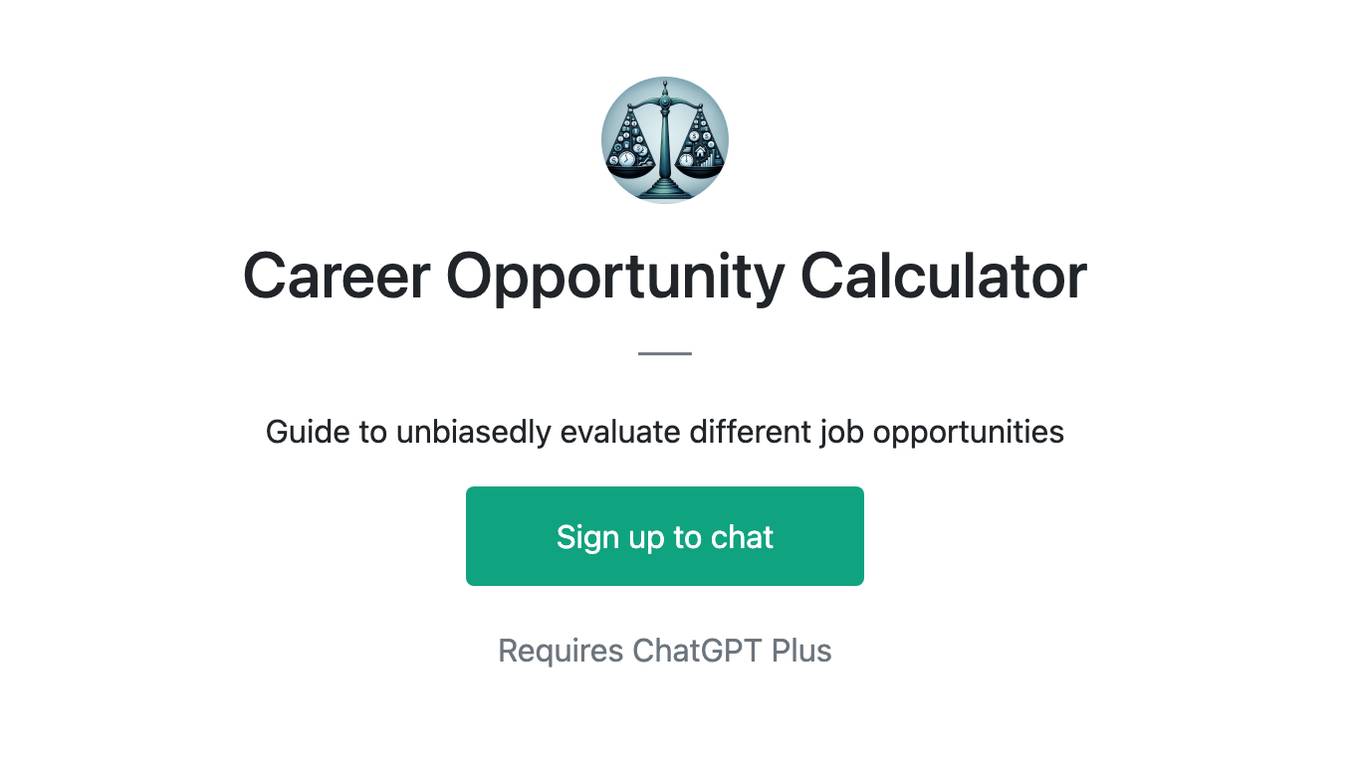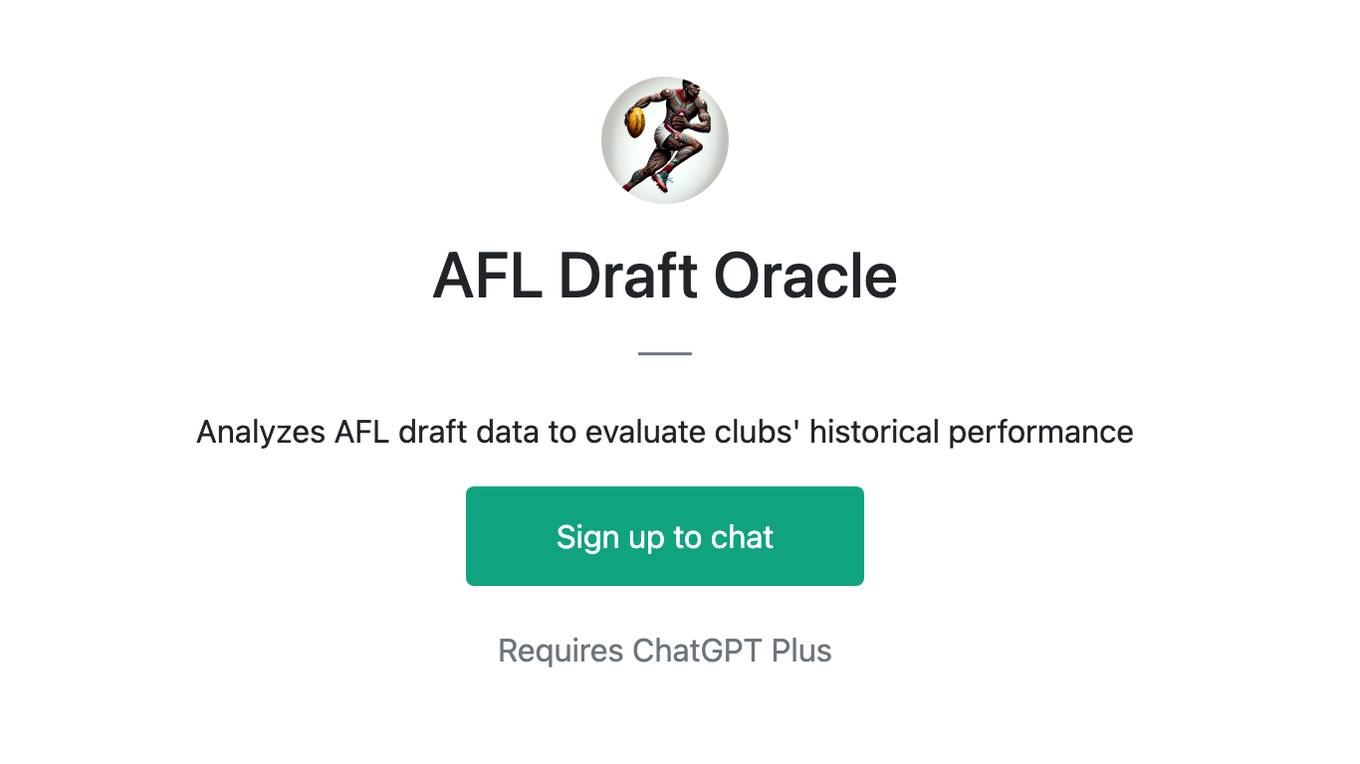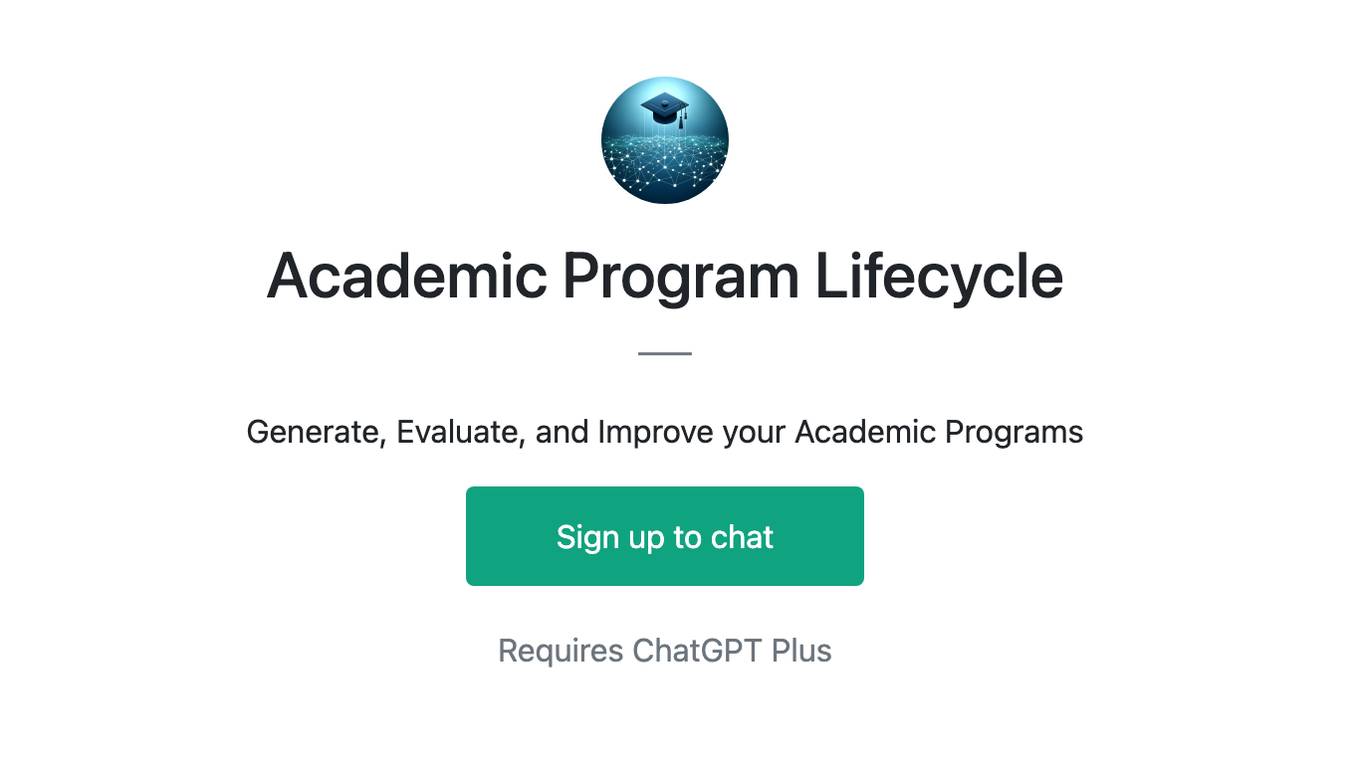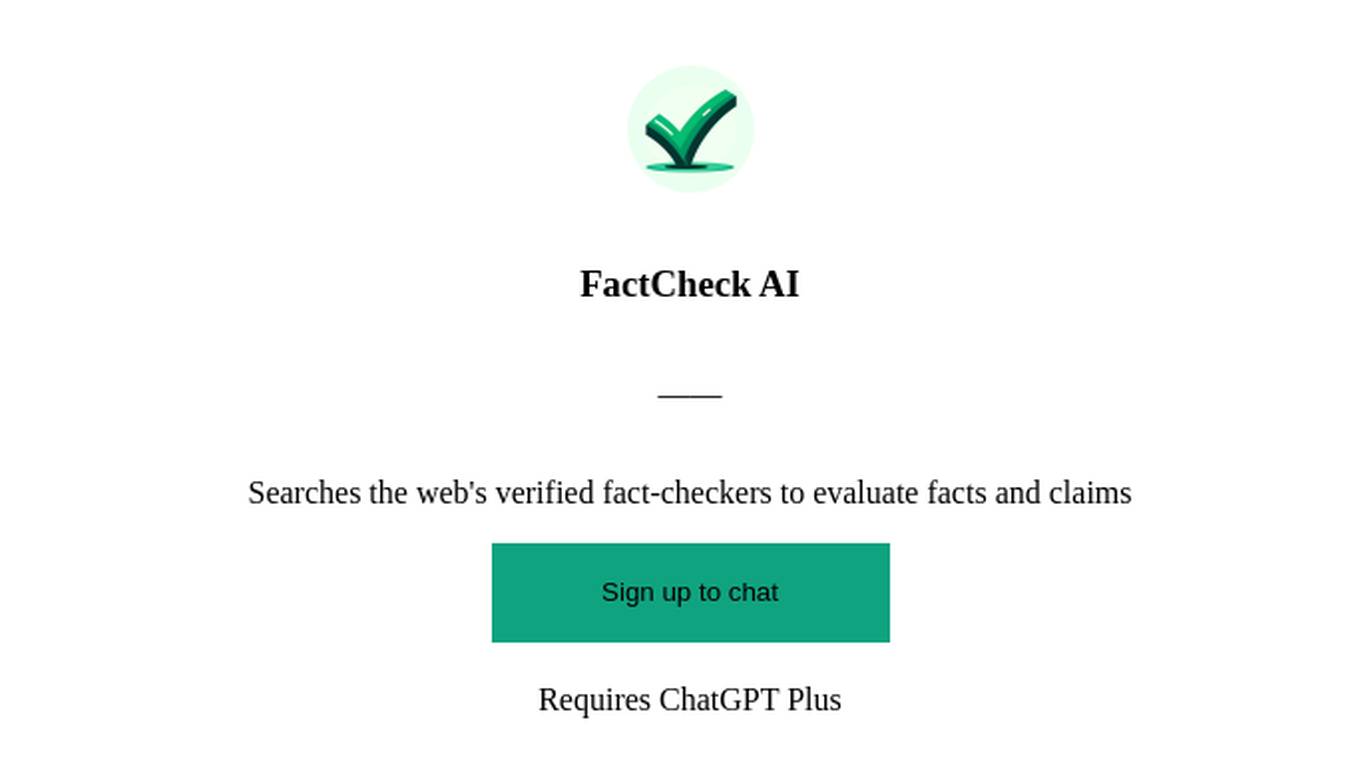Best AI tools for< Evaluate Images >
20 - AI tool Sites
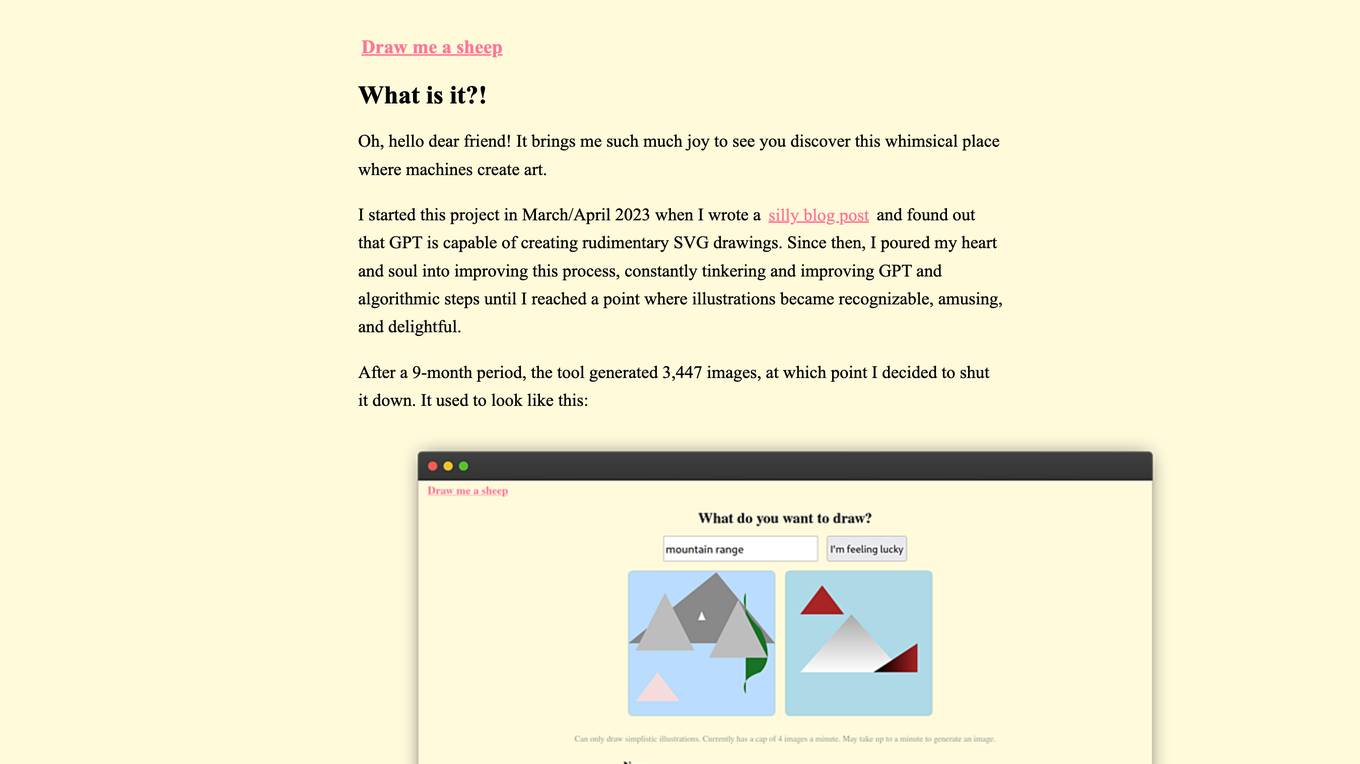
ArtGen
The website is a whimsical place where machines create art through the use of GPT and algorithmic steps. The project started in March/April 2023 with the goal of generating recognizable, amusing, and delightful illustrations. After 9 months, the tool generated 3,447 images, which were used to evaluate quality and select successful images for potential model fine-tuning.
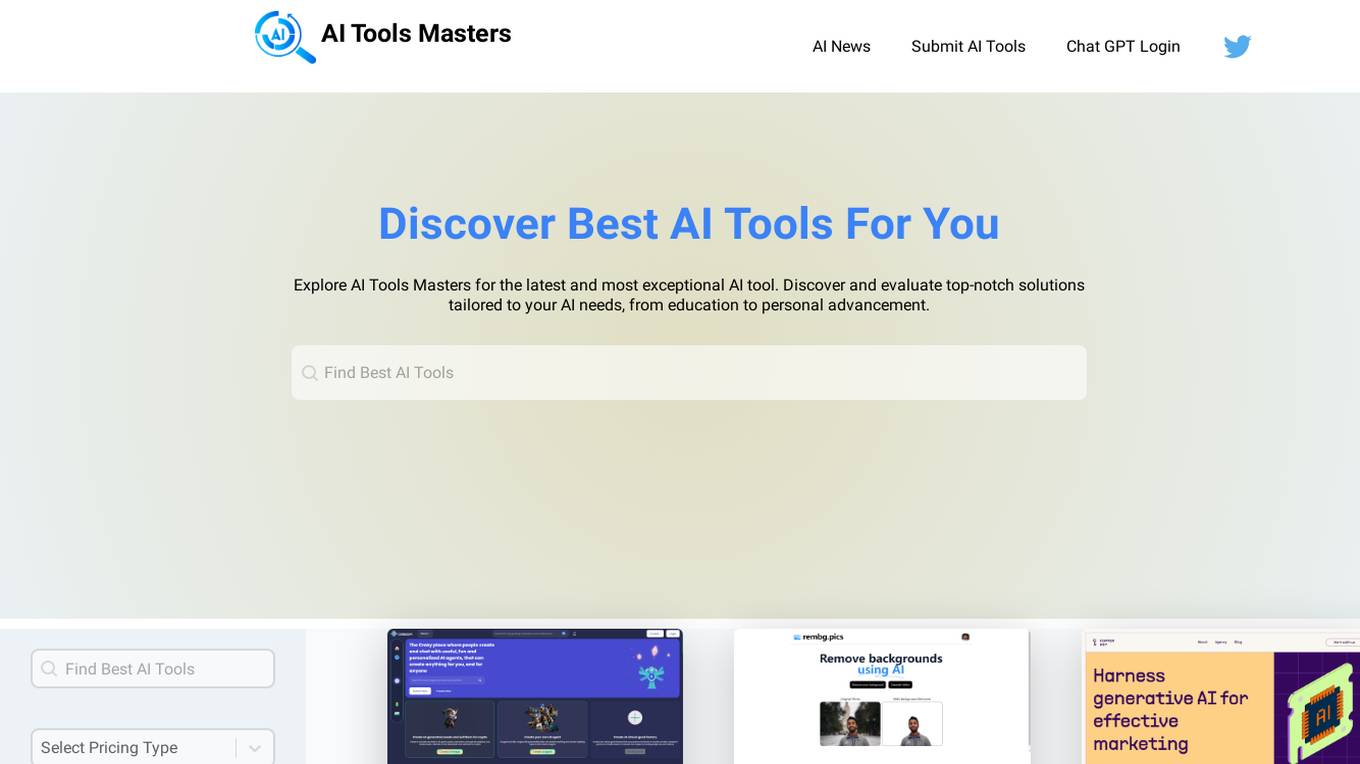
AI Tools Masters
AI Tools Masters is a comprehensive platform that empowers users to discover and evaluate the latest and most exceptional AI tools. Catering to diverse needs, from education to personal advancement, AI Tools Masters offers a curated collection of top-notch solutions tailored to specific requirements. With a user-friendly interface and extensive filtering options, users can effortlessly navigate through a wide range of AI tools, ensuring they find the perfect fit for their projects and goals.
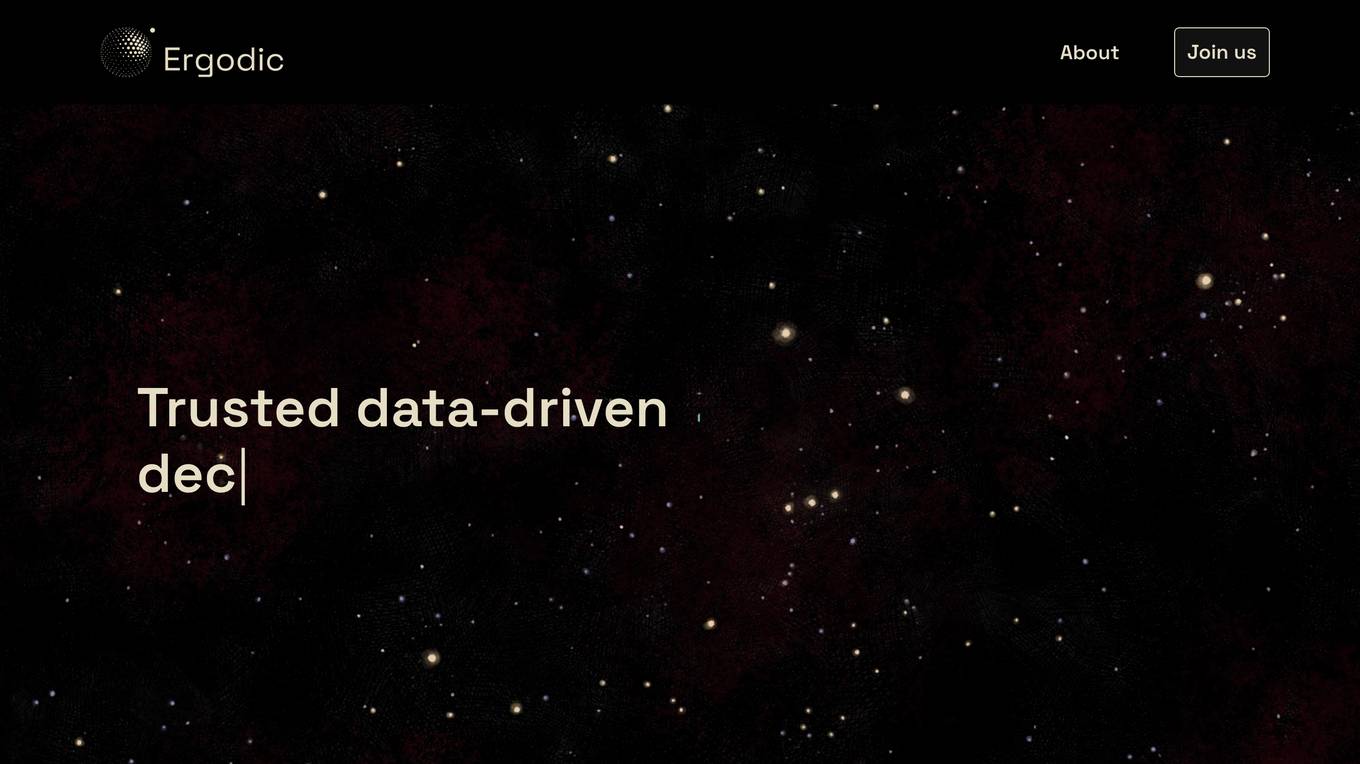
Ergodic - Kepler
Ergodic is an AI tool called Kepler that enables data-driven decisions for businesses. Kepler acts as an AI action engine, bridging the knowledge gap between business context and data to help optimize processes, identify opportunities, and mitigate risks. It goes beyond number crunching to build a digital version of the business, allowing users to create scenarios and evaluate outcomes. Kepler focuses on taking action directly, without the need for complex dashboards, providing insights on what needs to be done, why, and the potential outcomes. Ergodic aims to empower businesses with AI-driven solutions for strategic decision-making.
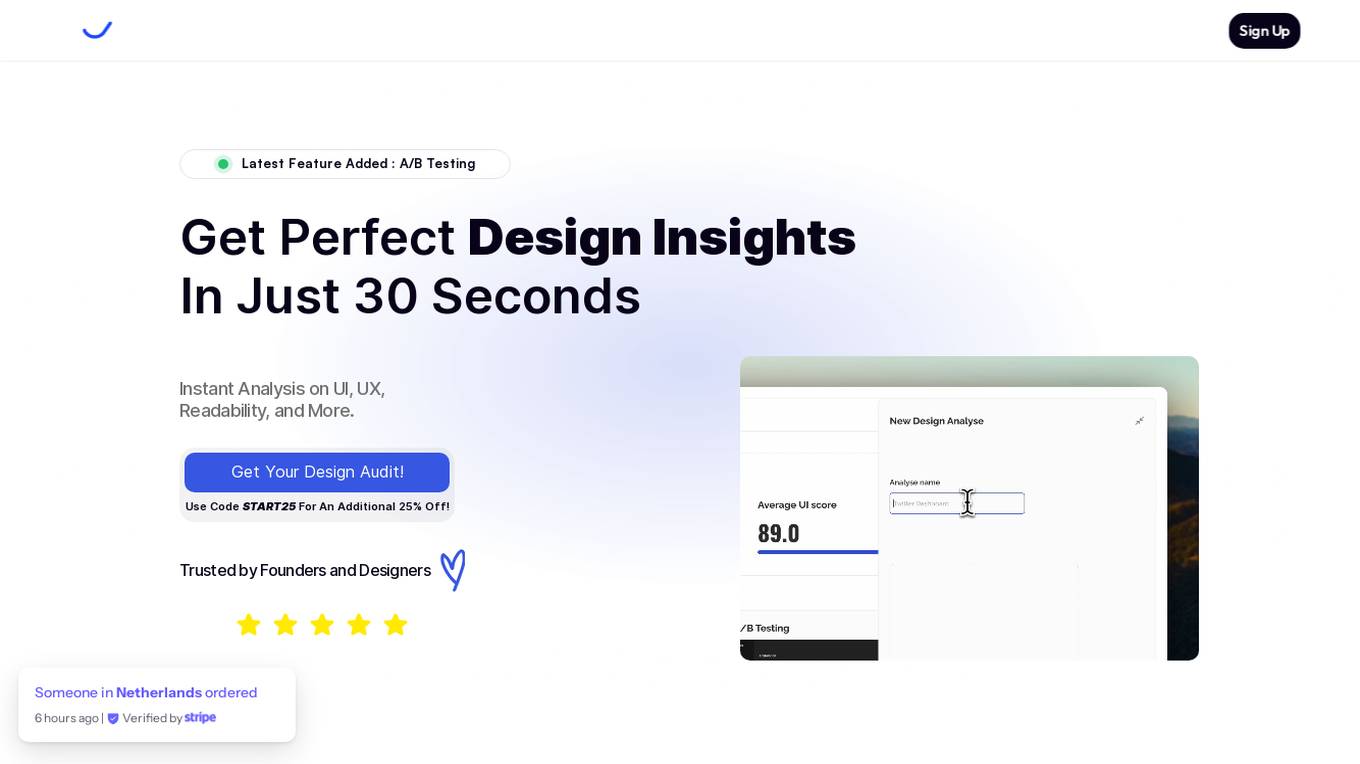
VisualHUB
VisualHUB is an AI-powered design analysis tool that provides instant insights on UI, UX, readability, and more. It offers features like A/B Testing, UI Analysis, UX Analysis, Readability Analysis, Margin and Hierarchy Analysis, and Competition Analysis. Users can upload product images to receive detailed reports with actionable insights and scores. Trusted by founders and designers, VisualHUB helps optimize design variations and identify areas for improvement in products.

MeDA School
MeDA School is an educational platform dedicated to promoting and nurturing talents in the field of Medical Artificial Intelligence (AI). The platform aims to establish a solid foundation for intelligent and precision medical talent pools in Taiwan and globally. MeDA School facilitates interaction and communication among members of the intelligent medical ecosystem, fostering deep understanding and trust in the operation and tasks of medical AI. The platform offers a blend of virtual and physical courses, inviting domain experts to share cutting-edge knowledge and integrating interdisciplinary knowledge to be practically applied in various fields.

Excire
Excire is an award-winning AI-based software designed for perfect photo management. The latest version, Excire Foto 2024, elevates your photo search and organization to a new level. It features five independent AI models that provide various search functions. Additionally, it offers innovative features and enhanced performance. Excire Search 2024 is the latest upgrade for Lightroom Classic users, offering intelligent image management, improved photo analysis AI, and integrated free-text search. Excire excels in assisting users in maintaining digital archives, finding photos quickly, and creating photo collections effortlessly.
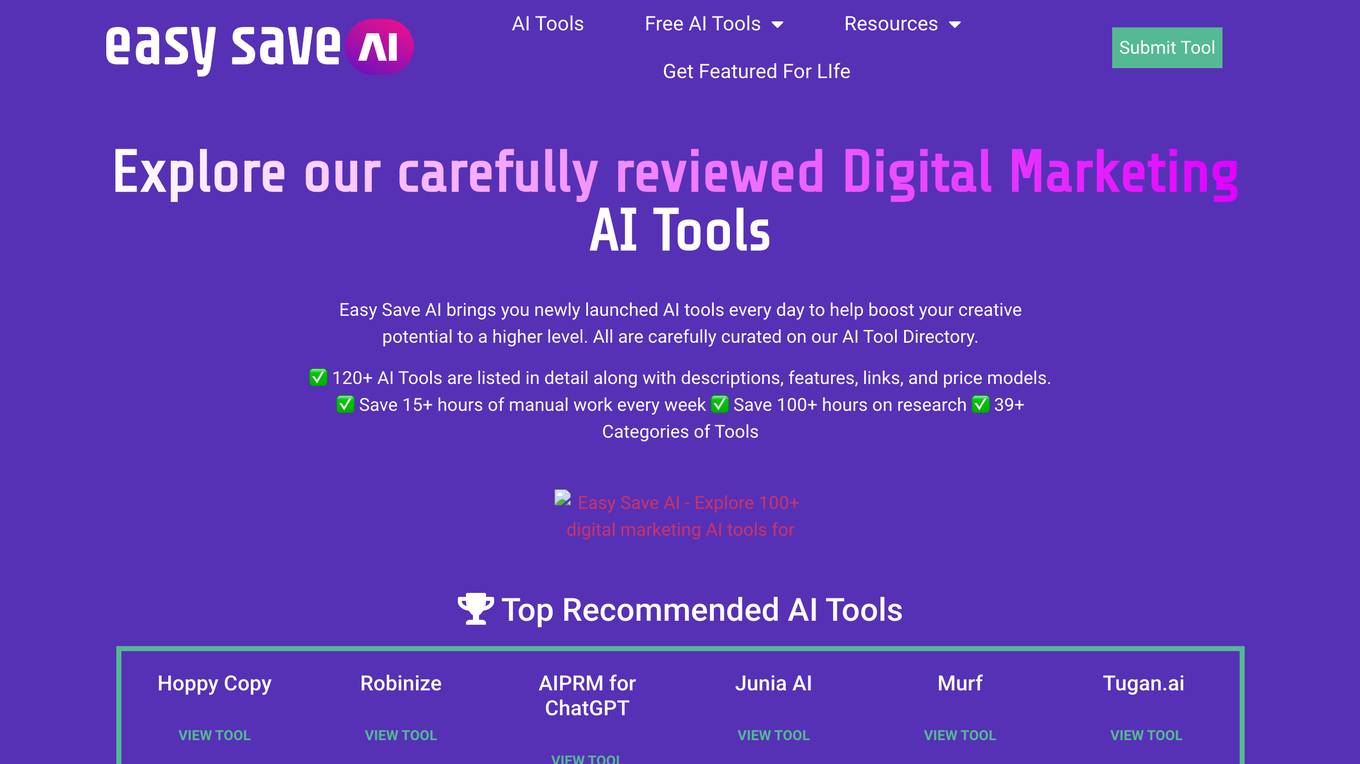
Easy Save AI
Easy Save AI is a comprehensive directory of Digital Marketing AI tools available online and curated by a digital marketing expert, Muritala Yusuf. Easy Save AI's primary objective is to ensure that AI is accessible to everyone. You can conveniently utilize our website to discover new AI tools and services or locate specific ones based on your requirements by Using our easy-to-use filter on the home page. AI technology is constantly progressing, and experts are continuously developing sophisticated models for various applications. Our directory includes an array of AI tools such as AI copywriters, text and image generators, AI transcription, SEO automation tools, and more. There is something suitable for every individual! Our website is committed to offering user-friendly AI tools and resources that can contribute to the success of you and your business in the digital era. We meticulously evaluate and curate each tool to ensure they possess valuable features and are accessible to both novices and experts. With the Easy Save AI platform, you can locate the AI tools you require and save valuable time and money. We sometimes have discounts on AI Tools and we always specify on the product page for you to use.
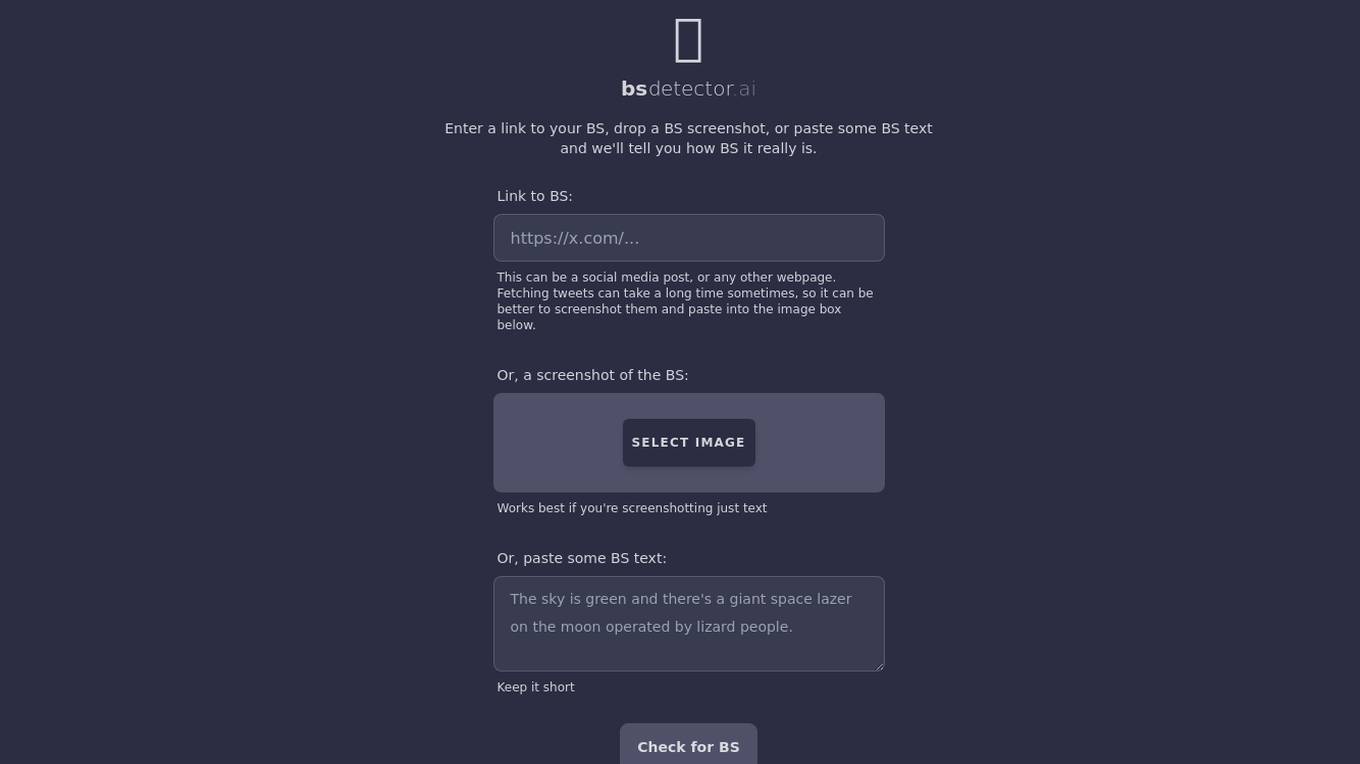
BS Detector
BS Detector is an AI tool designed to help users determine the credibility of information by analyzing text or images for misleading or false content. Users can input a link, upload a screenshot, or paste text to receive a BS (Bullshit) rating. The tool leverages AI algorithms to assess the accuracy and truthfulness of the provided content, offering users a quick and efficient way to identify potentially deceptive information.
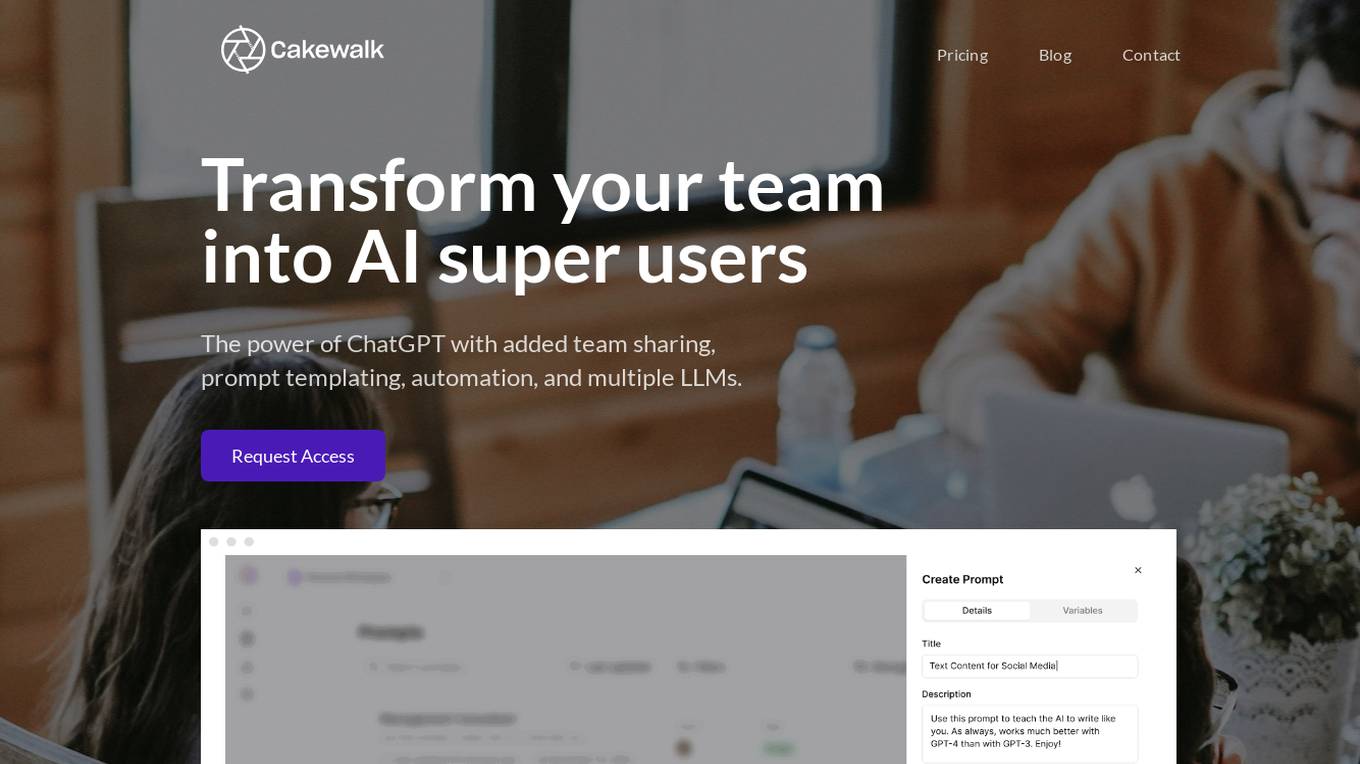
Cakewalk AI
Cakewalk AI is an AI-powered platform designed to enhance team productivity by leveraging the power of ChatGPT and automation tools. It offers features such as team workspaces, prompt libraries, automation with prebuilt templates, and the ability to combine documents, images, and URLs. Users can automate tasks like updating product roadmaps, creating user personas, evaluating resumes, and more. Cakewalk AI aims to empower teams across various departments like Product, HR, Marketing, and Legal to streamline their workflows and improve efficiency.
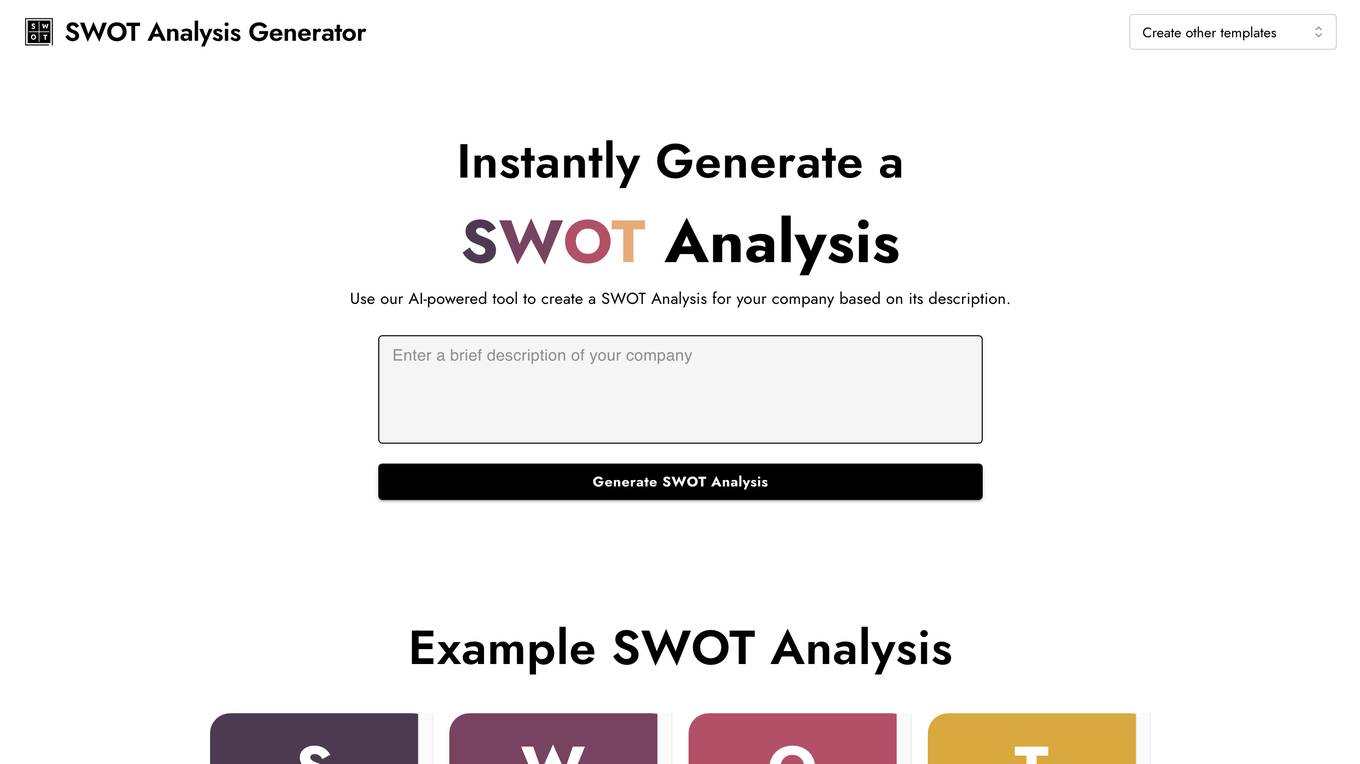
InstantPersonas
InstantPersonas is an AI-powered SWOT Analysis Generator that helps organizations and individuals evaluate their Strengths, Weaknesses, Opportunities, and Threats. By using a company description, the tool generates a comprehensive SWOT Analysis, providing insights for strategic planning. Users can edit the analysis and download it as an image. InstantPersonas aims to assist in understanding target audience and market for more successful marketing strategies.
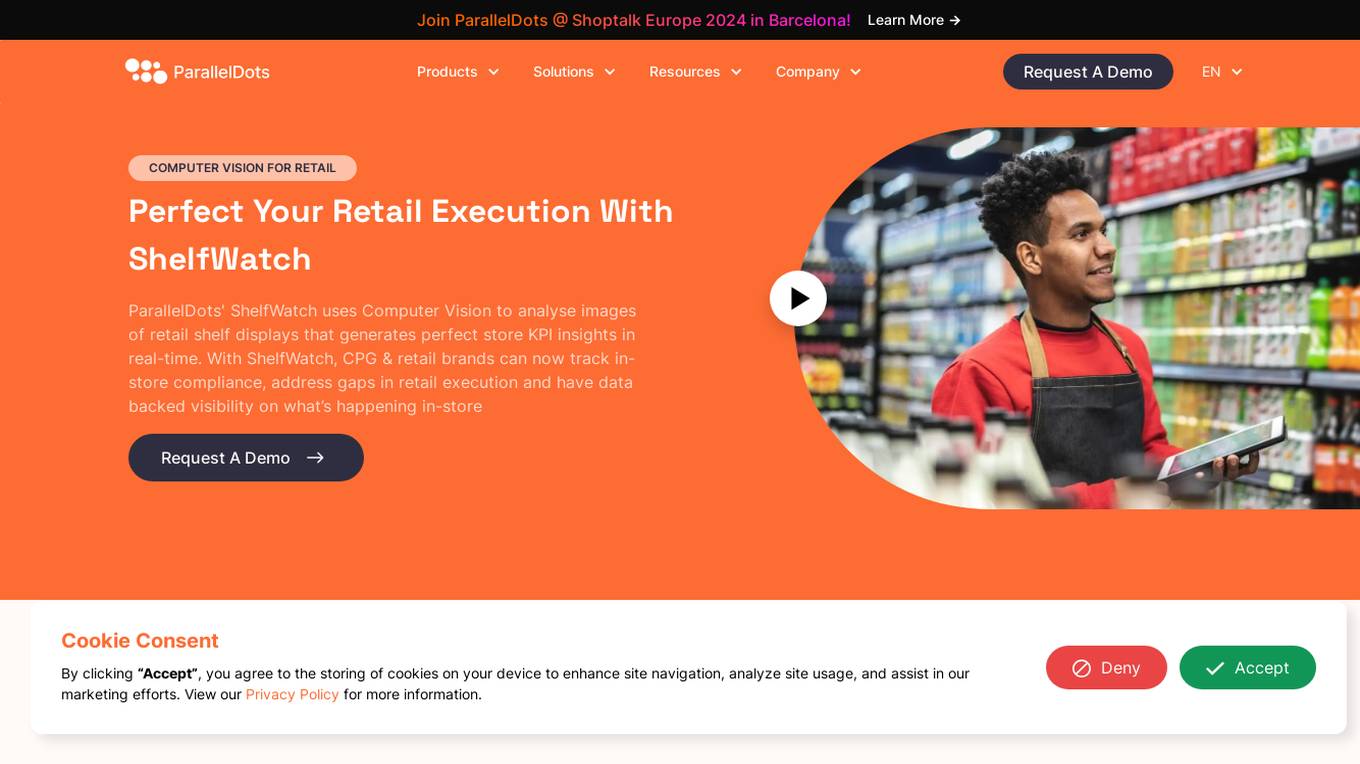
ParallelDots
ParallelDots is a next-generation retail execution software powered by image recognition technology. The software offers solutions like ShelfWatch, Saarthi, and SmartGaze to enhance the efficiency of sales reps and merchandisers, provide faster training of image recognition models, and offer automated gaze-coding solutions for mobile and retail eye-tracking research. ParallelDots' computer vision technology helps CPG and retail brands track in-store compliance, address gaps in retail execution, and gain real-time insights into brand performance. The platform enables users to generate real-time KPI insights, evaluate compliance levels, convert insights into actionable strategies, and integrate computer vision with existing retail solutions seamlessly.

Getbound
Getbound is an AI solutions provider that enables companies to evaluate, customize, and scale technology solutions with artificial intelligence easily and quickly. They offer services such as AI consulting, NLP solutions, MLOps, generative AI development, data engineering services, and computer vision solutions. Getbound empowers businesses to turn data into savings, automate processes, and improve overall performance through AI technologies.
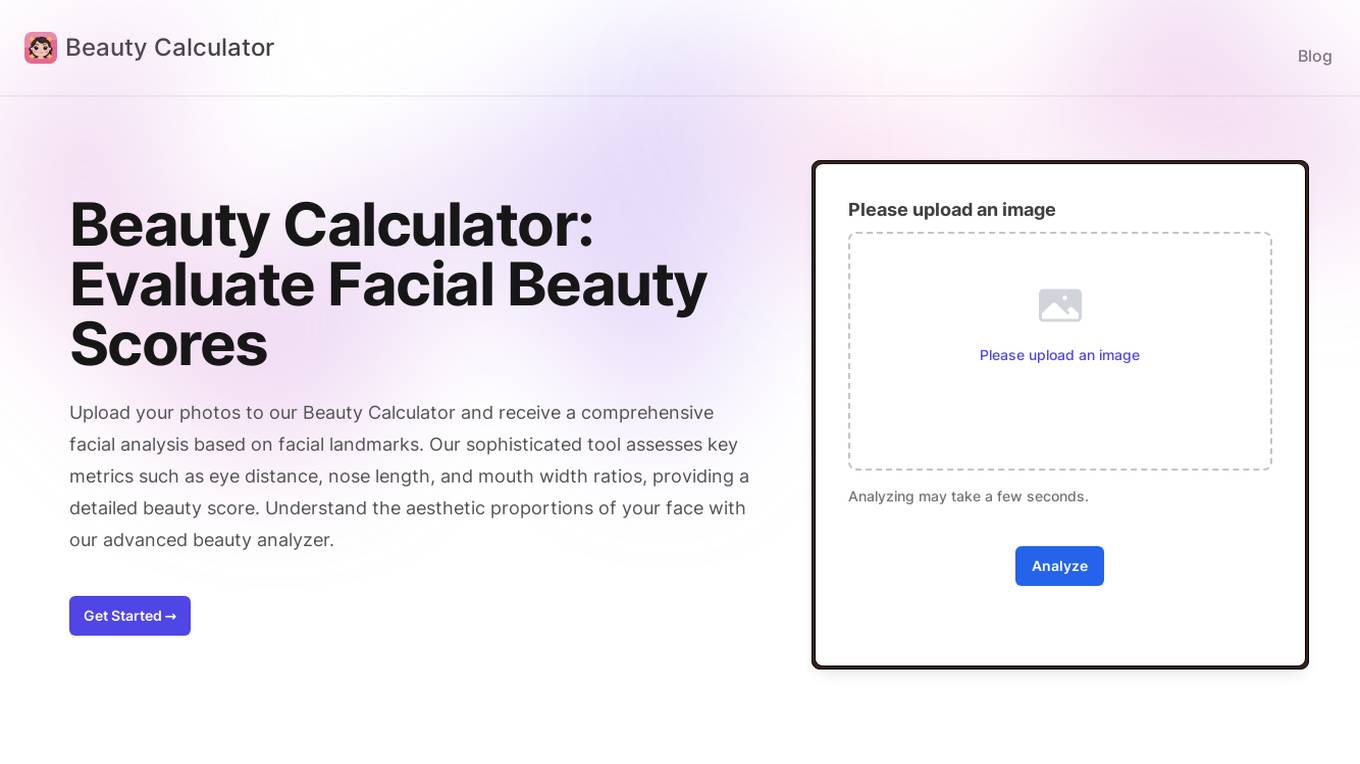
Beauty Calculator
Beauty Calculator is an advanced AI tool that offers facial beauty analysis based on uploaded photos. It utilizes sophisticated algorithms to assess facial landmarks and proportions, providing users with detailed beauty scores. The tool helps individuals understand the aesthetic proportions of their faces, offering insights into symmetry, balance, and overall beauty profile. Beauty Calculator delivers quick and accurate results, making it a convenient option for those seeking to explore their facial beauty. The tool is user-friendly, allowing seamless image upload and analysis for an enhanced user experience.
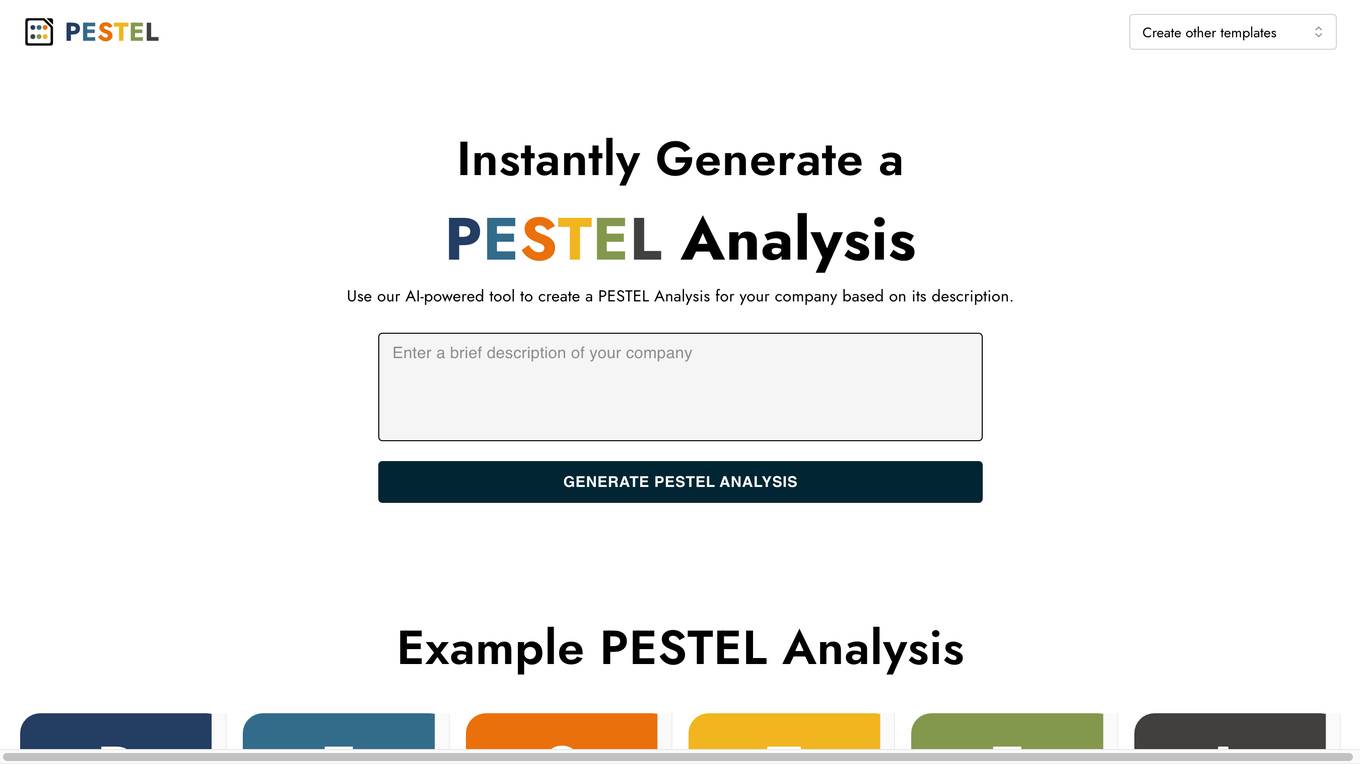
AI PESTEL Analysis Generator
The AI PESTEL Analysis Generator is a powerful tool designed to help organizations understand and evaluate external macro-environmental factors that can impact their business operations. By utilizing artificial intelligence technology, this tool instantly generates a comprehensive PESTEL Analysis based on the company's description. Users can easily edit and download the analysis as an image, enabling them to develop strategic plans to adapt and succeed in the marketplace. The tool simplifies the process of conducting a PESTEL analysis, providing valuable insights for decision-making and planning.
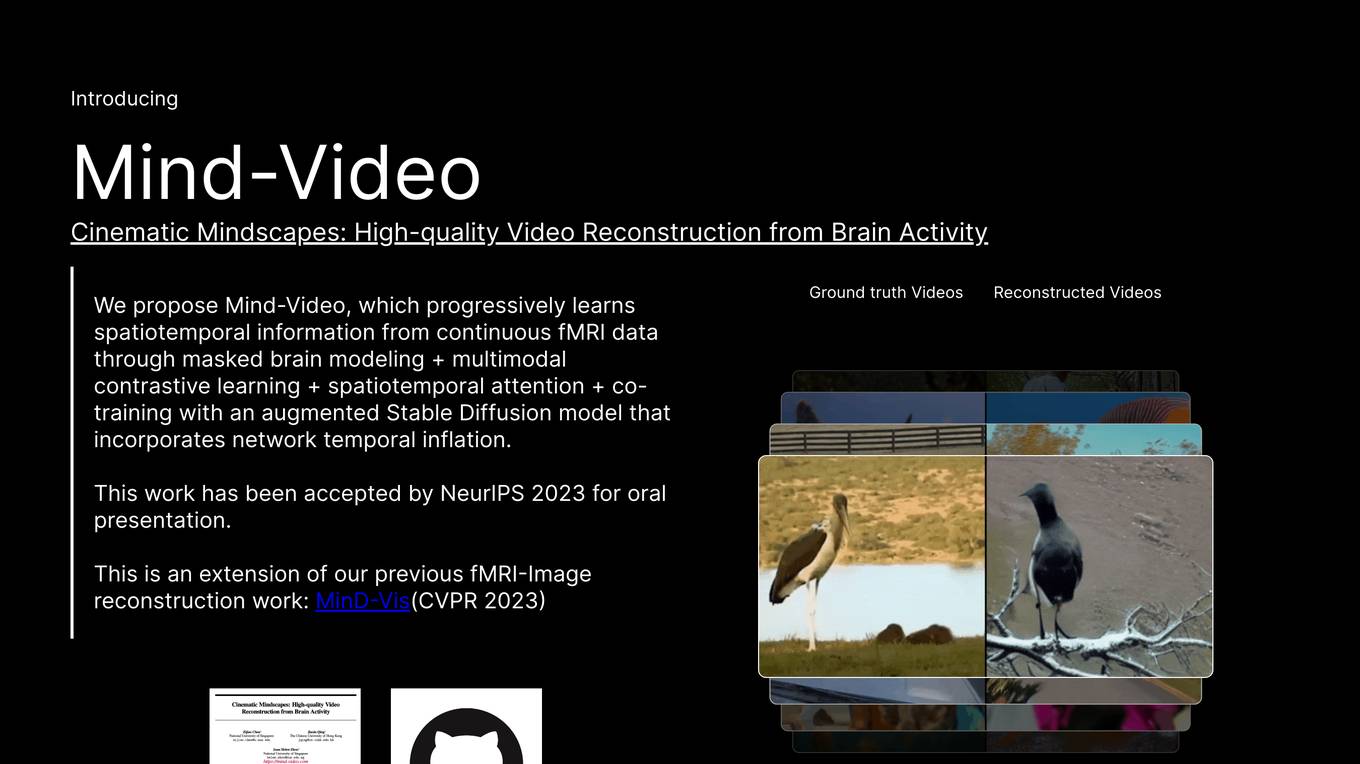
Mind-Video
Mind-Video is an AI tool that focuses on high-quality video reconstruction from brain activity data. It bridges the gap between image and video brain decoding by utilizing masked brain modeling, multimodal contrastive learning, spatiotemporal attention, and co-training with an augmented Stable Diffusion model. The tool aims to recover accurate semantic information from fMRI signals, enabling the generation of realistic videos based on brain activities.

Lisapet.AI
Lisapet.AI is an AI prompt testing suite designed for product teams to streamline the process of designing, prototyping, testing, and shipping AI features. It offers a comprehensive platform with features like best-in-class AI playground, variables for dynamic data inputs, structured outputs, side-by-side editing, function calling, image inputs, assertions & metrics, performance comparison, data sets organization, shareable reports, comments & feedback, token & cost stats, and more. The application aims to help teams save time, improve efficiency, and ensure the reliability of AI features through automated prompt testing.
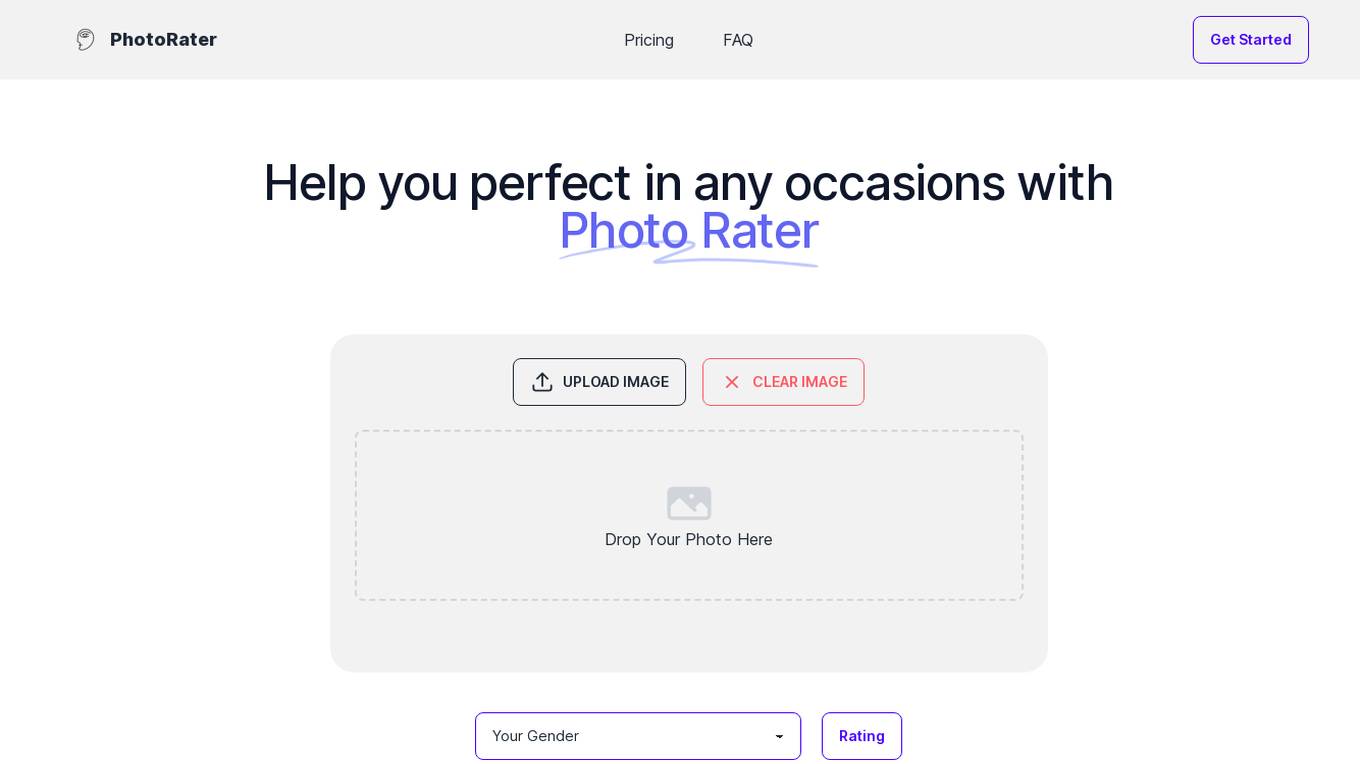
PhotoRater
PhotoRater is an AI-powered photo rating application that allows users to upload their photos and receive an AI-driven analysis of their appearance. The AI evaluates various aspects such as dressing, hairstyle, and facial expressions, providing suggestions for improvement. Users can get personalized feedback to enhance their looks for any occasion, whether it's for a special event, professional image enhancement, or simply to look their best. PhotoRater prioritizes user privacy and security, ensuring that all data is securely processed within the user's browser.

BenchLLM
BenchLLM is an AI tool designed for AI engineers to evaluate LLM-powered apps by running and evaluating models with a powerful CLI. It allows users to build test suites, choose evaluation strategies, and generate quality reports. The tool supports OpenAI, Langchain, and other APIs out of the box, offering automation, visualization of reports, and monitoring of model performance.
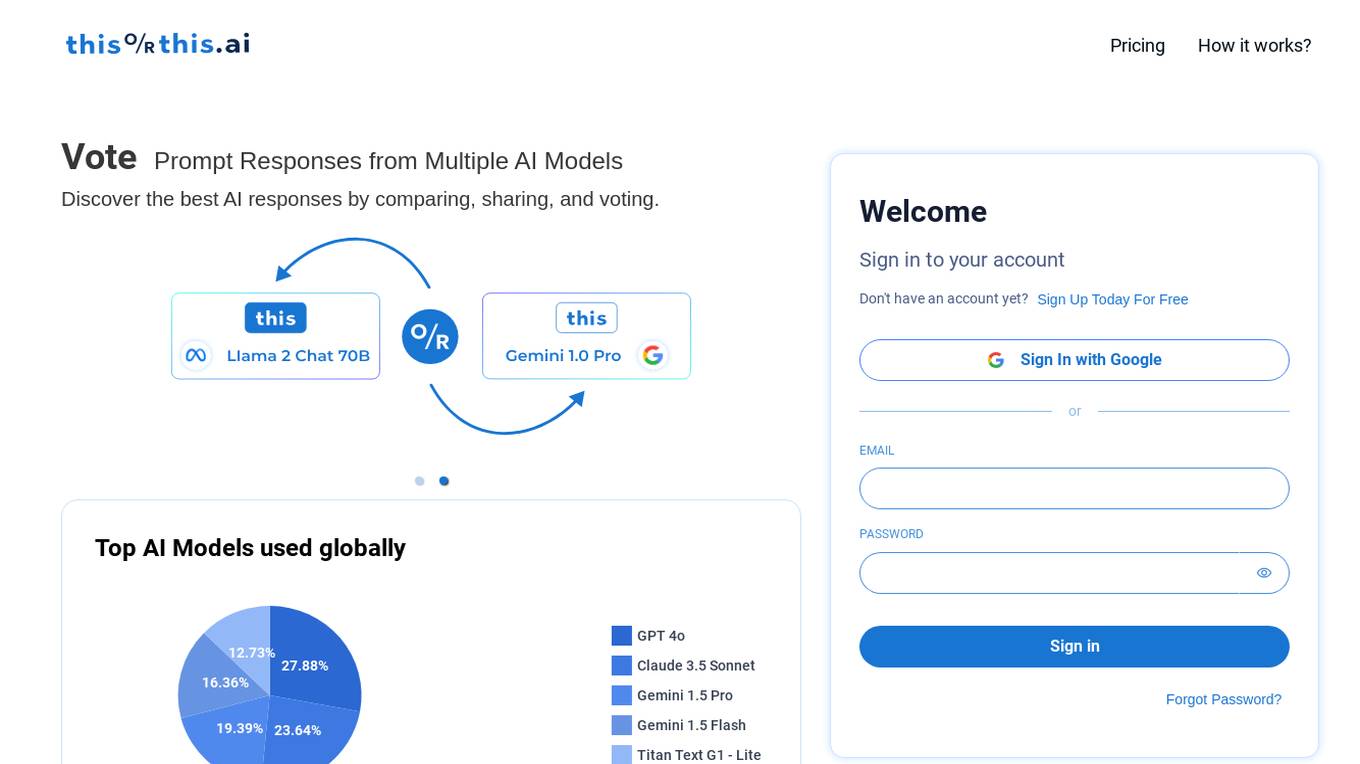
thisorthis.ai
thisorthis.ai is an AI tool that allows users to compare generative AI models and AI model responses. It helps users analyze and evaluate different AI models to make informed decisions. The tool requires JavaScript to be enabled for optimal functionality.

Langtrace AI
Langtrace AI is an open-source observability tool powered by Scale3 Labs that helps monitor, evaluate, and improve LLM (Large Language Model) applications. It collects and analyzes traces and metrics to provide insights into the ML pipeline, ensuring security through SOC 2 Type II certification. Langtrace supports popular LLMs, frameworks, and vector databases, offering end-to-end observability and the ability to build and deploy AI applications with confidence.
20 - Open Source AI Tools
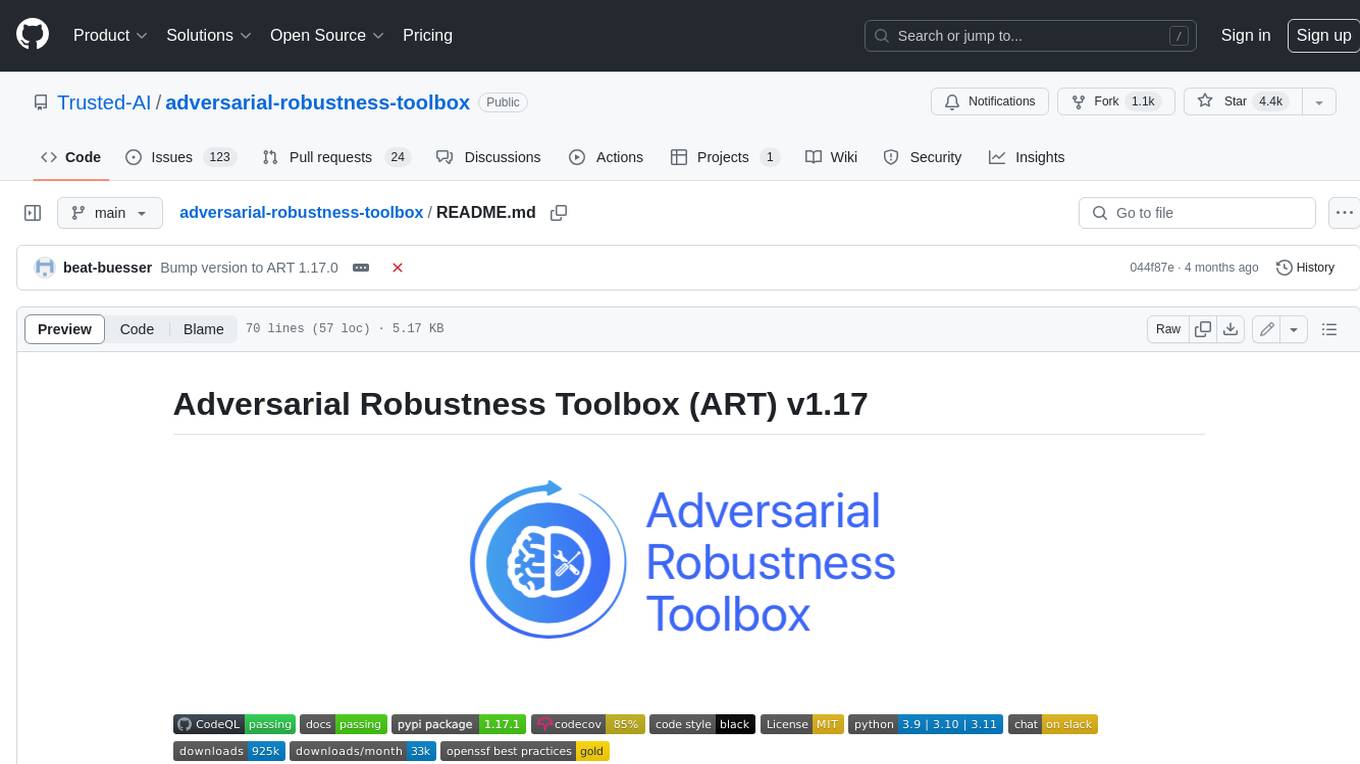
adversarial-robustness-toolbox
Adversarial Robustness Toolbox (ART) is a Python library for Machine Learning Security. ART provides tools that enable developers and researchers to defend and evaluate Machine Learning models and applications against the adversarial threats of Evasion, Poisoning, Extraction, and Inference. ART supports all popular machine learning frameworks (TensorFlow, Keras, PyTorch, MXNet, scikit-learn, XGBoost, LightGBM, CatBoost, GPy, etc.), all data types (images, tables, audio, video, etc.) and machine learning tasks (classification, object detection, speech recognition, generation, certification, etc.).
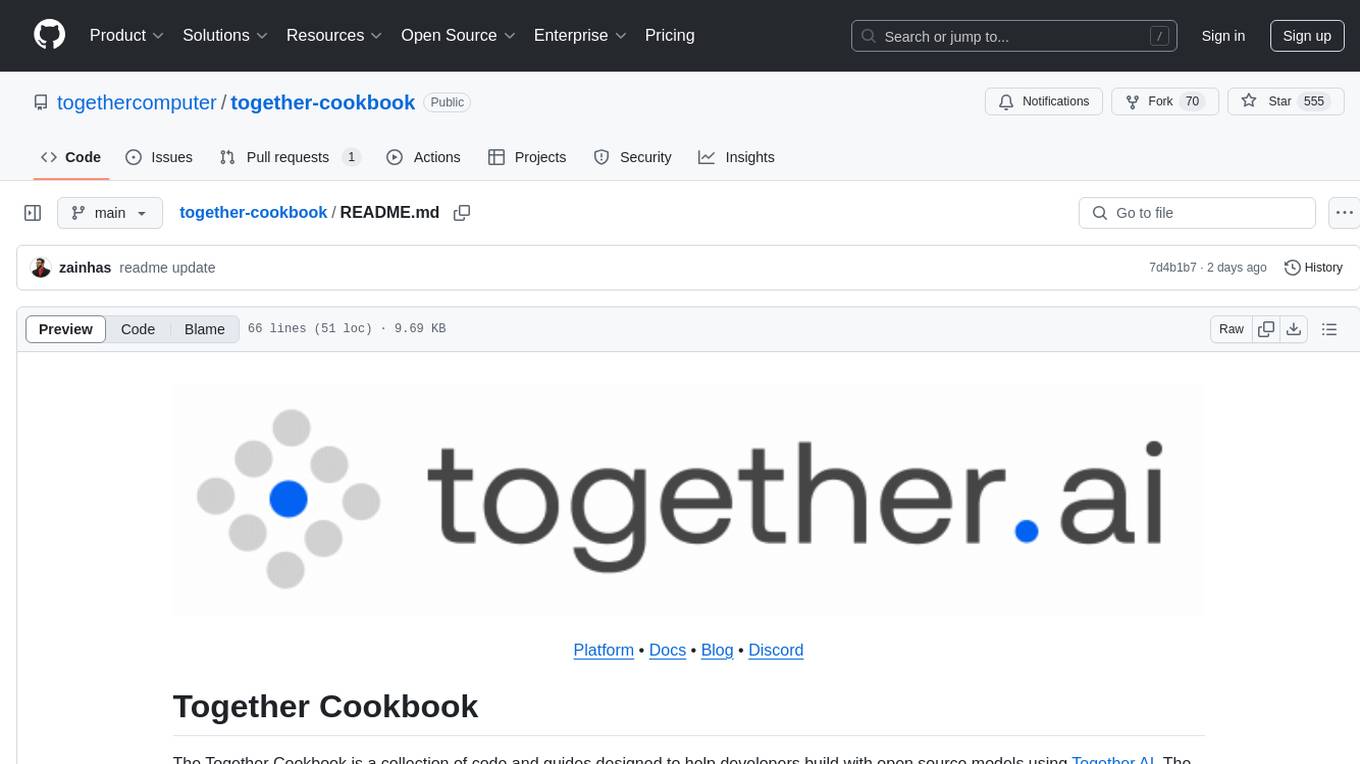
together-cookbook
The Together Cookbook is a collection of code and guides designed to help developers build with open source models using Together AI. The recipes provide examples on how to chain multiple LLM calls, create agents that route tasks to specialized models, run multiple LLMs in parallel, break down tasks into parallel subtasks, build agents that iteratively improve responses, perform LoRA fine-tuning and inference, fine-tune LLMs for repetition, improve summarization capabilities, fine-tune LLMs on multi-step conversations, implement retrieval-augmented generation, conduct multimodal search and conditional image generation, visualize vector embeddings, improve search results with rerankers, implement vector search with embedding models, extract structured text from images, summarize and evaluate outputs with LLMs, generate podcasts from PDF content, and get LLMs to generate knowledge graphs.
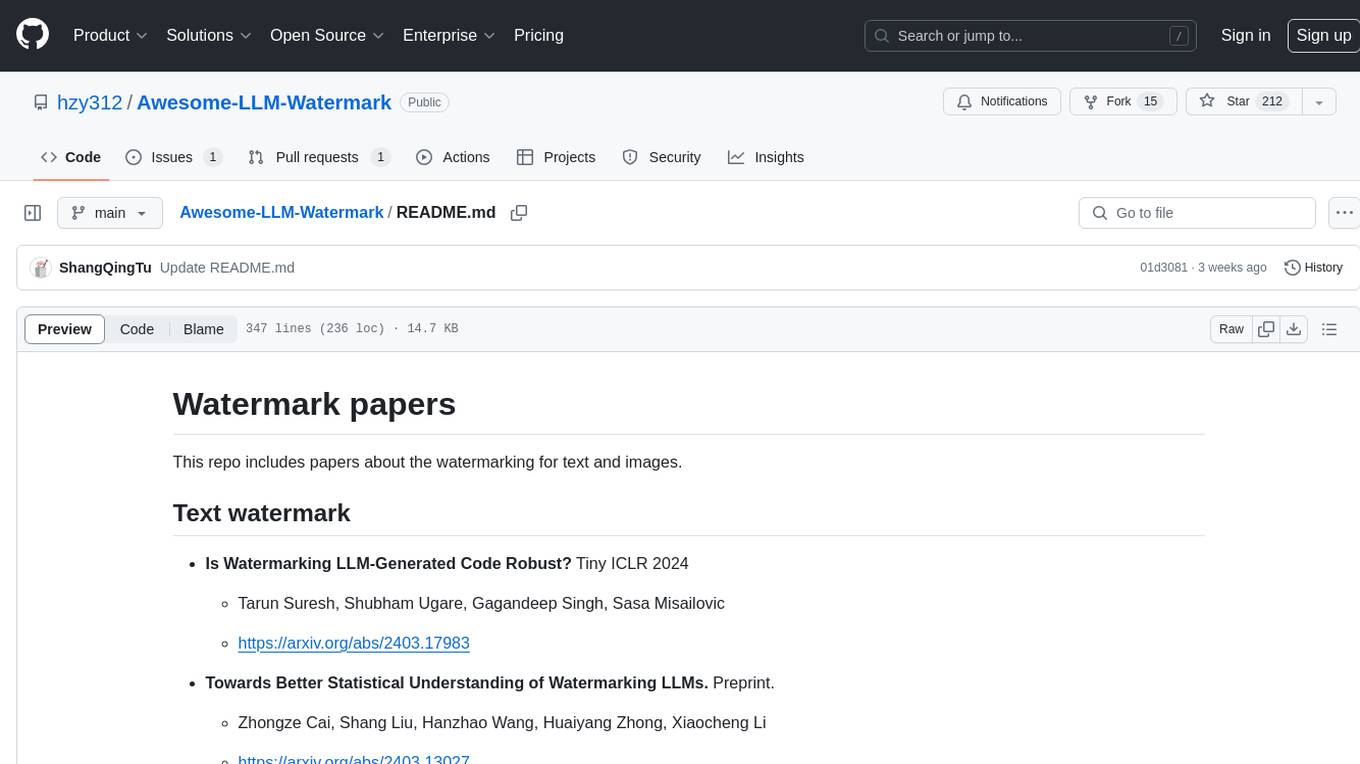
Awesome-LLM-Watermark
This repository contains a collection of research papers related to watermarking techniques for text and images, specifically focusing on large language models (LLMs). The papers cover various aspects of watermarking LLM-generated content, including robustness, statistical understanding, topic-based watermarks, quality-detection trade-offs, dual watermarks, watermark collision, and more. Researchers have explored different methods and frameworks for watermarking LLMs to protect intellectual property, detect machine-generated text, improve generation quality, and evaluate watermarking techniques. The repository serves as a valuable resource for those interested in the field of watermarking for LLMs.

h2ogpt
h2oGPT is an Apache V2 open-source project that allows users to query and summarize documents or chat with local private GPT LLMs. It features a private offline database of any documents (PDFs, Excel, Word, Images, Video Frames, Youtube, Audio, Code, Text, MarkDown, etc.), a persistent database (Chroma, Weaviate, or in-memory FAISS) using accurate embeddings (instructor-large, all-MiniLM-L6-v2, etc.), and efficient use of context using instruct-tuned LLMs (no need for LangChain's few-shot approach). h2oGPT also offers parallel summarization and extraction, reaching an output of 80 tokens per second with the 13B LLaMa2 model, HYDE (Hypothetical Document Embeddings) for enhanced retrieval based upon LLM responses, a variety of models supported (LLaMa2, Mistral, Falcon, Vicuna, WizardLM. With AutoGPTQ, 4-bit/8-bit, LORA, etc.), GPU support from HF and LLaMa.cpp GGML models, and CPU support using HF, LLaMa.cpp, and GPT4ALL models. Additionally, h2oGPT provides Attention Sinks for arbitrarily long generation (LLaMa-2, Mistral, MPT, Pythia, Falcon, etc.), a UI or CLI with streaming of all models, the ability to upload and view documents through the UI (control multiple collaborative or personal collections), Vision Models LLaVa, Claude-3, Gemini-Pro-Vision, GPT-4-Vision, Image Generation Stable Diffusion (sdxl-turbo, sdxl) and PlaygroundAI (playv2), Voice STT using Whisper with streaming audio conversion, Voice TTS using MIT-Licensed Microsoft Speech T5 with multiple voices and Streaming audio conversion, Voice TTS using MPL2-Licensed TTS including Voice Cloning and Streaming audio conversion, AI Assistant Voice Control Mode for hands-free control of h2oGPT chat, Bake-off UI mode against many models at the same time, Easy Download of model artifacts and control over models like LLaMa.cpp through the UI, Authentication in the UI by user/password via Native or Google OAuth, State Preservation in the UI by user/password, Linux, Docker, macOS, and Windows support, Easy Windows Installer for Windows 10 64-bit (CPU/CUDA), Easy macOS Installer for macOS (CPU/M1/M2), Inference Servers support (oLLaMa, HF TGI server, vLLM, Gradio, ExLLaMa, Replicate, OpenAI, Azure OpenAI, Anthropic), OpenAI-compliant, Server Proxy API (h2oGPT acts as drop-in-replacement to OpenAI server), Python client API (to talk to Gradio server), JSON Mode with any model via code block extraction. Also supports MistralAI JSON mode, Claude-3 via function calling with strict Schema, OpenAI via JSON mode, and vLLM via guided_json with strict Schema, Web-Search integration with Chat and Document Q/A, Agents for Search, Document Q/A, Python Code, CSV frames (Experimental, best with OpenAI currently), Evaluate performance using reward models, and Quality maintained with over 1000 unit and integration tests taking over 4 GPU-hours.
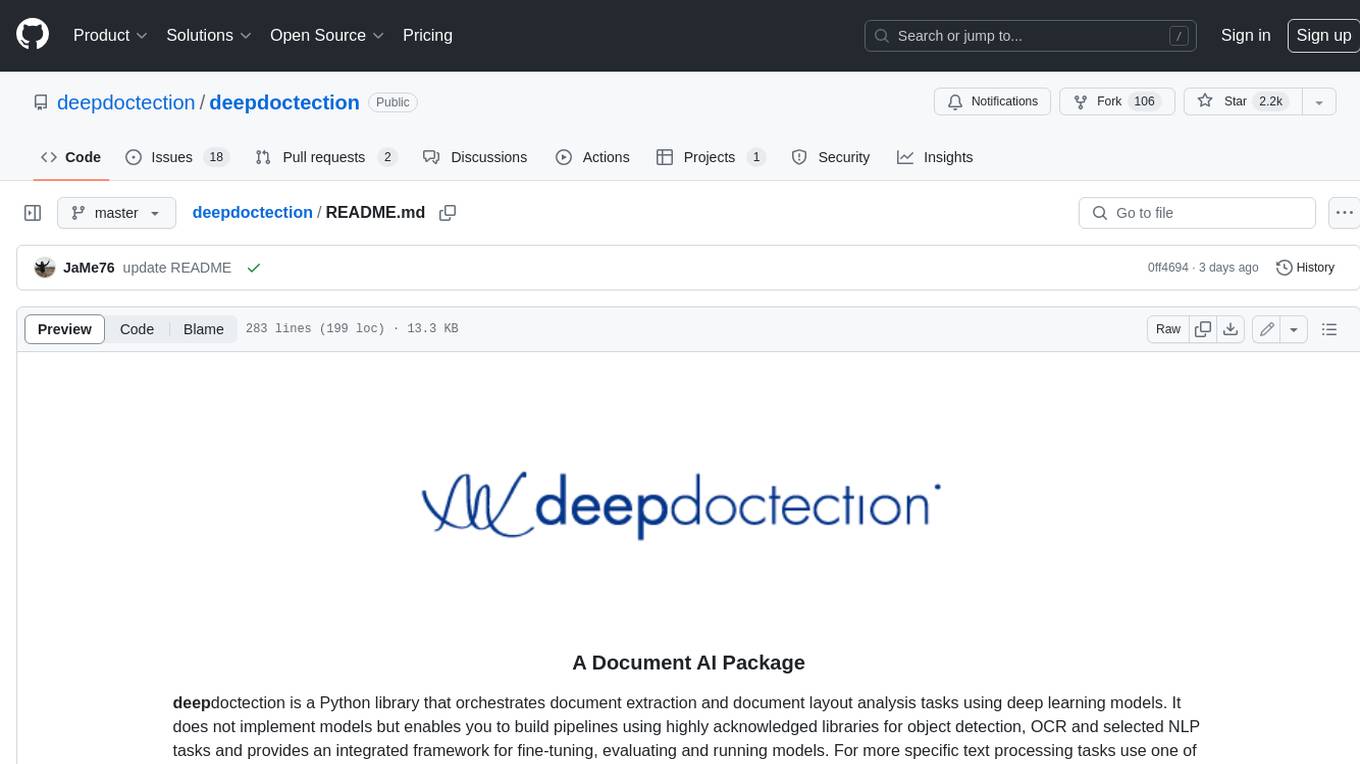
deepdoctection
**deep** doctection is a Python library that orchestrates document extraction and document layout analysis tasks using deep learning models. It does not implement models but enables you to build pipelines using highly acknowledged libraries for object detection, OCR and selected NLP tasks and provides an integrated framework for fine-tuning, evaluating and running models. For more specific text processing tasks use one of the many other great NLP libraries. **deep** doctection focuses on applications and is made for those who want to solve real world problems related to document extraction from PDFs or scans in various image formats. **deep** doctection provides model wrappers of supported libraries for various tasks to be integrated into pipelines. Its core function does not depend on any specific deep learning library. Selected models for the following tasks are currently supported: * Document layout analysis including table recognition in Tensorflow with **Tensorpack**, or PyTorch with **Detectron2**, * OCR with support of **Tesseract**, **DocTr** (Tensorflow and PyTorch implementations available) and a wrapper to an API for a commercial solution, * Text mining for native PDFs with **pdfplumber**, * Language detection with **fastText**, * Deskewing and rotating images with **jdeskew**. * Document and token classification with all LayoutLM models provided by the **Transformer library**. (Yes, you can use any LayoutLM-model with any of the provided OCR-or pdfplumber tools straight away!). * Table detection and table structure recognition with **table-transformer**. * There is a small dataset for token classification available and a lot of new tutorials to show, how to train and evaluate this dataset using LayoutLMv1, LayoutLMv2, LayoutXLM and LayoutLMv3. * Comprehensive configuration of **analyzer** like choosing different models, output parsing, OCR selection. Check this notebook or the docs for more infos. * Document layout analysis and table recognition now runs with **Torchscript** (CPU) as well and **Detectron2** is not required anymore for basic inference. * [**new**] More angle predictors for determining the rotation of a document based on **Tesseract** and **DocTr** (not contained in the built-in Analyzer). * [**new**] Token classification with **LiLT** via **transformers**. We have added a model wrapper for token classification with LiLT and added a some LiLT models to the model catalog that seem to look promising, especially if you want to train a model on non-english data. The training script for LayoutLM can be used for LiLT as well and we will be providing a notebook on how to train a model on a custom dataset soon. **deep** doctection provides on top of that methods for pre-processing inputs to models like cropping or resizing and to post-process results, like validating duplicate outputs, relating words to detected layout segments or ordering words into contiguous text. You will get an output in JSON format that you can customize even further by yourself. Have a look at the **introduction notebook** in the notebook repo for an easy start. Check the **release notes** for recent updates. **deep** doctection or its support libraries provide pre-trained models that are in most of the cases available at the **Hugging Face Model Hub** or that will be automatically downloaded once requested. For instance, you can find pre-trained object detection models from the Tensorpack or Detectron2 framework for coarse layout analysis, table cell detection and table recognition. Training is a substantial part to get pipelines ready on some specific domain, let it be document layout analysis, document classification or NER. **deep** doctection provides training scripts for models that are based on trainers developed from the library that hosts the model code. Moreover, **deep** doctection hosts code to some well established datasets like **Publaynet** that makes it easy to experiment. It also contains mappings from widely used data formats like COCO and it has a dataset framework (akin to **datasets** so that setting up training on a custom dataset becomes very easy. **This notebook** shows you how to do this. **deep** doctection comes equipped with a framework that allows you to evaluate predictions of a single or multiple models in a pipeline against some ground truth. Check again **here** how it is done. Having set up a pipeline it takes you a few lines of code to instantiate the pipeline and after a for loop all pages will be processed through the pipeline.
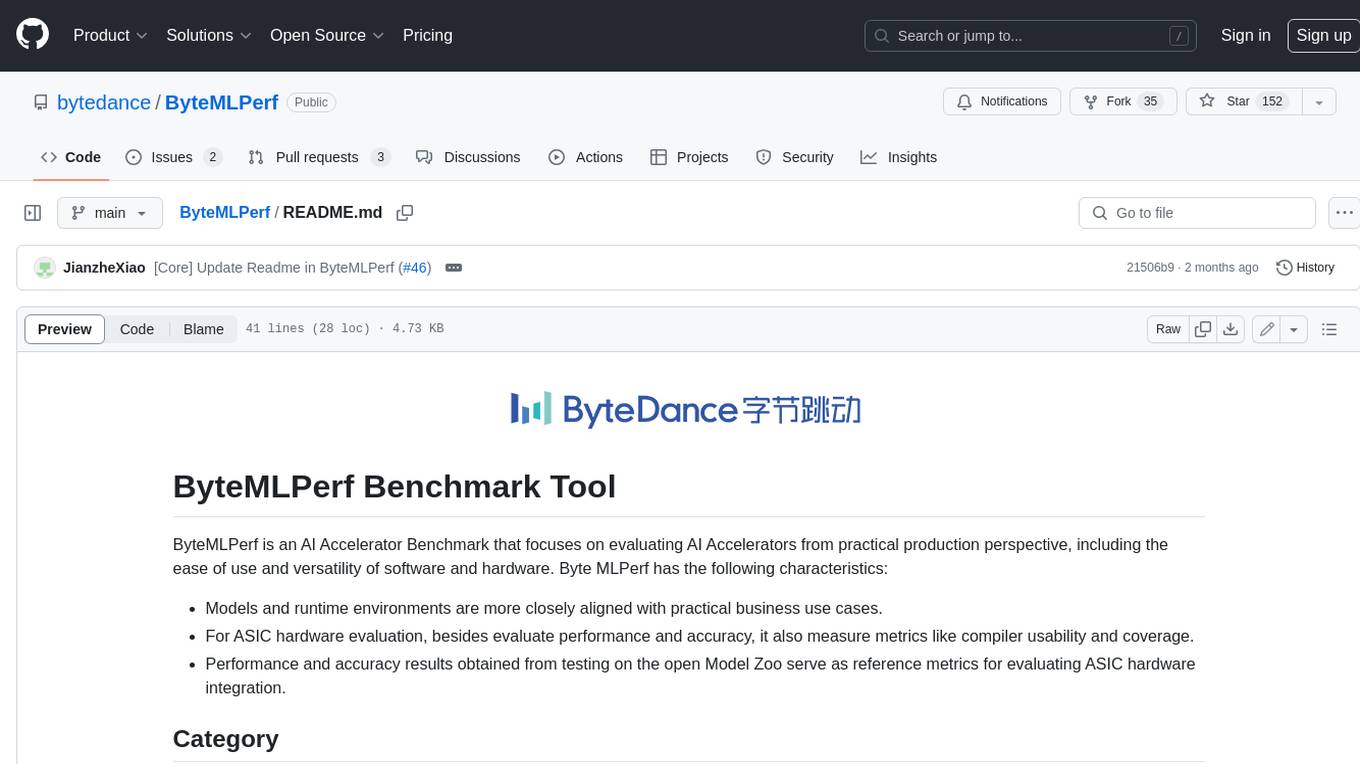
ByteMLPerf
ByteMLPerf is an AI Accelerator Benchmark that focuses on evaluating AI Accelerators from a practical production perspective, including the ease of use and versatility of software and hardware. Byte MLPerf has the following characteristics: - Models and runtime environments are more closely aligned with practical business use cases. - For ASIC hardware evaluation, besides evaluate performance and accuracy, it also measure metrics like compiler usability and coverage. - Performance and accuracy results obtained from testing on the open Model Zoo serve as reference metrics for evaluating ASIC hardware integration.
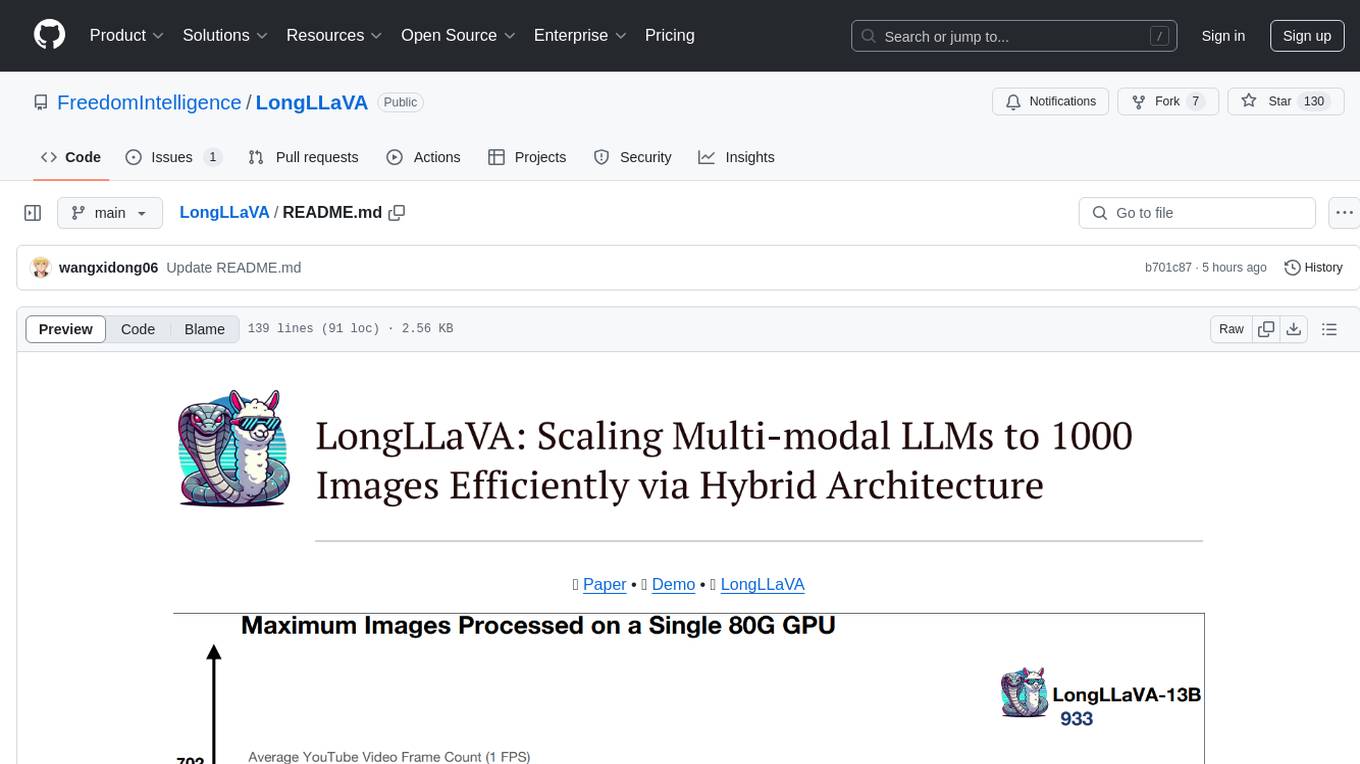
LongLLaVA
LongLLaVA is a tool for scaling multi-modal LLMs to 1000 images efficiently via hybrid architecture. It includes stages for single-image alignment, instruction-tuning, and multi-image instruction-tuning, with evaluation through a command line interface and model inference. The tool aims to achieve GPT-4V level capabilities and beyond, providing reproducibility of results and benchmarks for efficiency and performance.
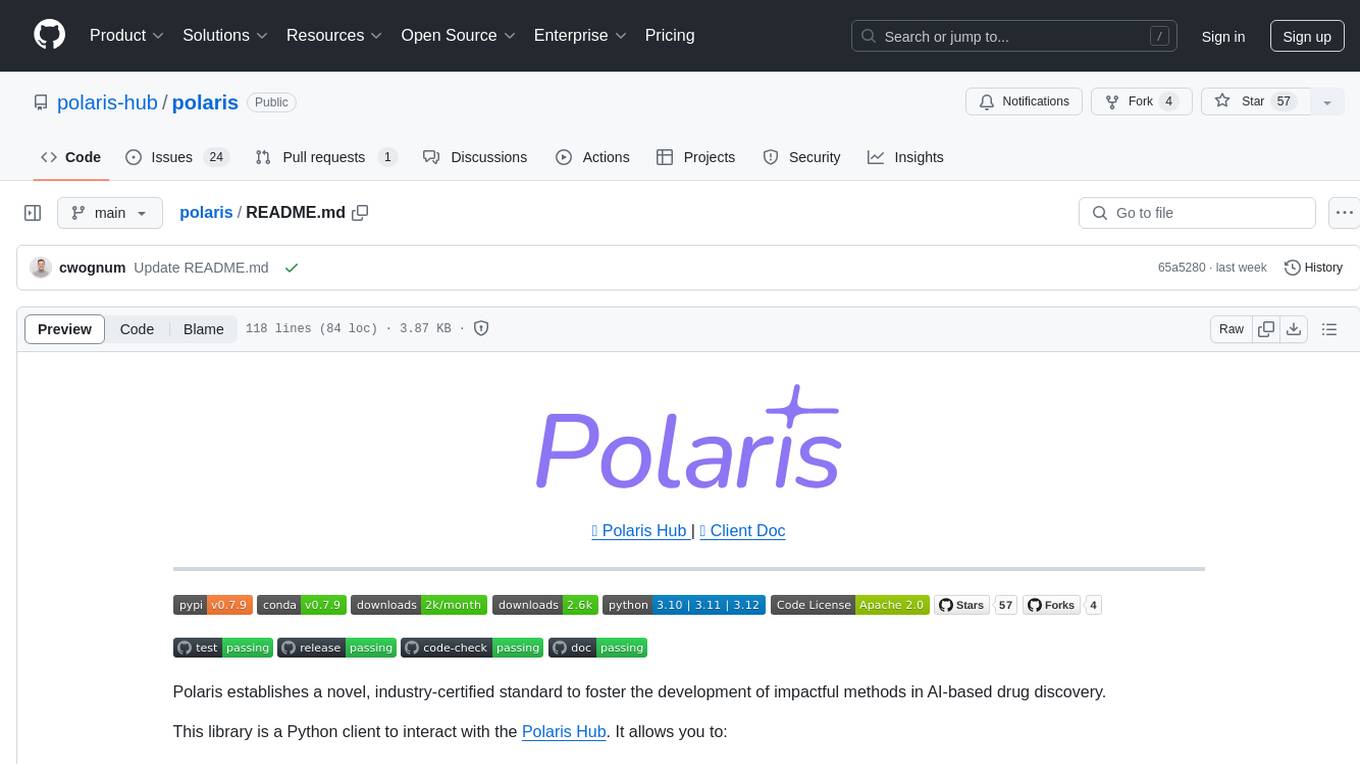
polaris
Polaris establishes a novel, industry‑certified standard to foster the development of impactful methods in AI-based drug discovery. This library is a Python client to interact with the Polaris Hub. It allows you to download Polaris datasets and benchmarks, evaluate a custom method against a Polaris benchmark, and create and upload new datasets and benchmarks.
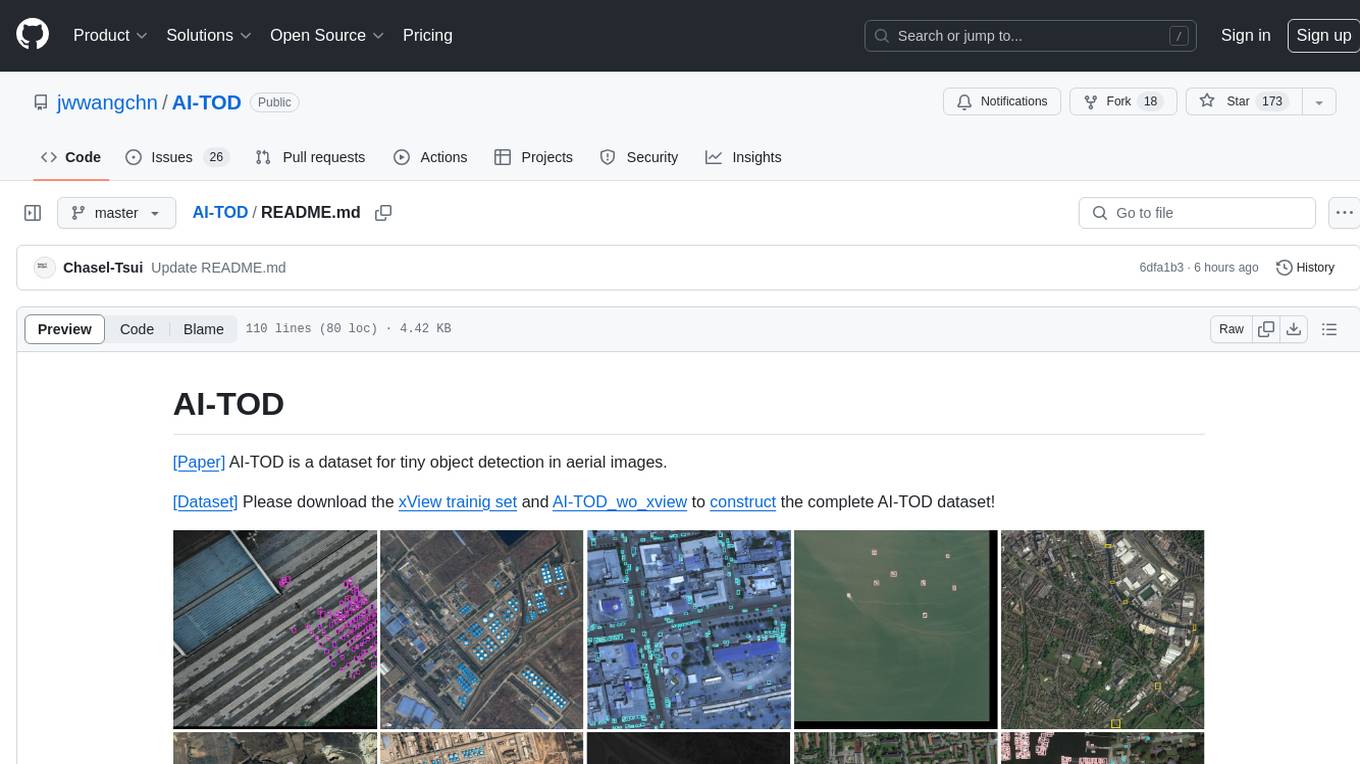
AI-TOD
AI-TOD is a dataset for tiny object detection in aerial images, containing 700,621 object instances across 28,036 images. Objects in AI-TOD are smaller with a mean size of 12.8 pixels compared to other aerial image datasets. To use AI-TOD, download xView training set and AI-TOD_wo_xview, then generate the complete dataset using the provided synthesis tool. The dataset is publicly available for academic and research purposes under CC BY-NC-SA 4.0 license.
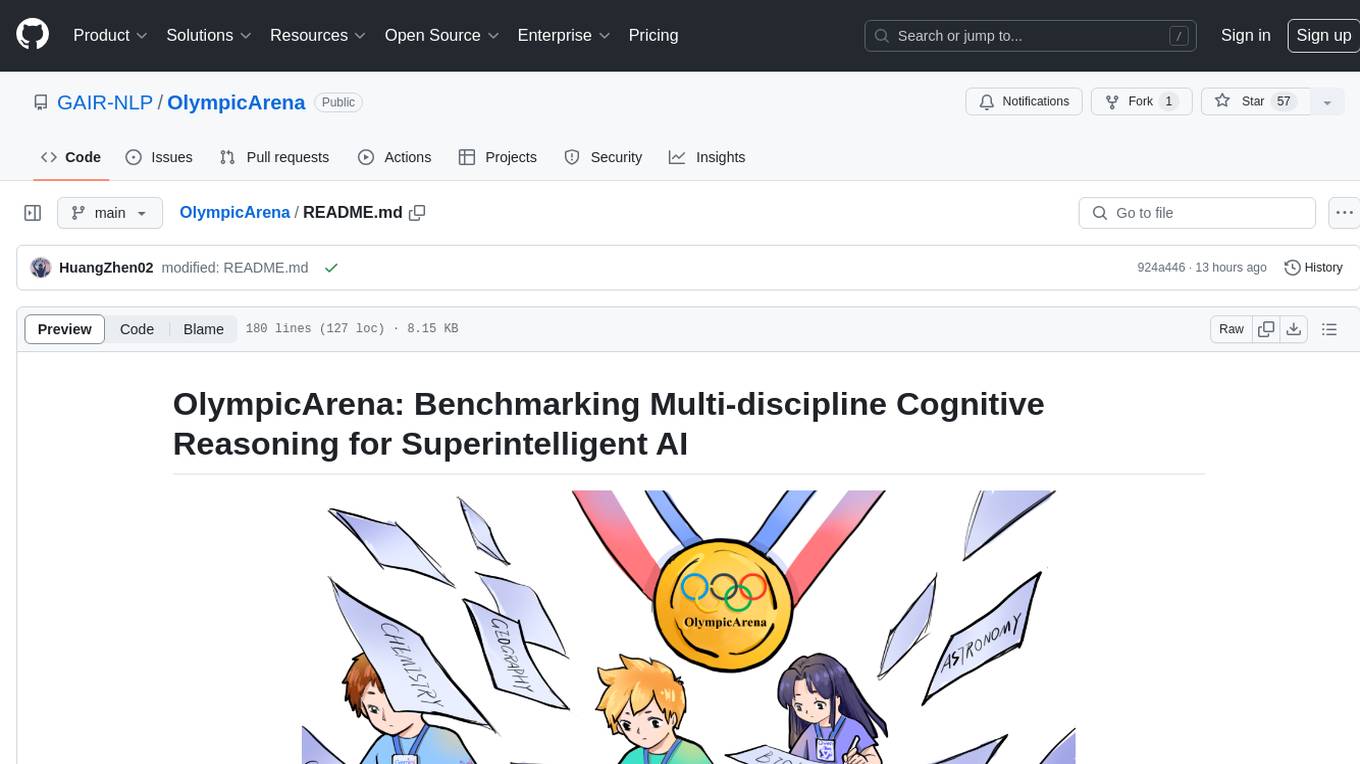
OlympicArena
OlympicArena is a comprehensive benchmark designed to evaluate advanced AI capabilities across various disciplines. It aims to push AI towards superintelligence by tackling complex challenges in science and beyond. The repository provides detailed data for different disciplines, allows users to run inference and evaluation locally, and offers a submission platform for testing models on the test set. Additionally, it includes an annotation interface and encourages users to cite their paper if they find the code or dataset helpful.
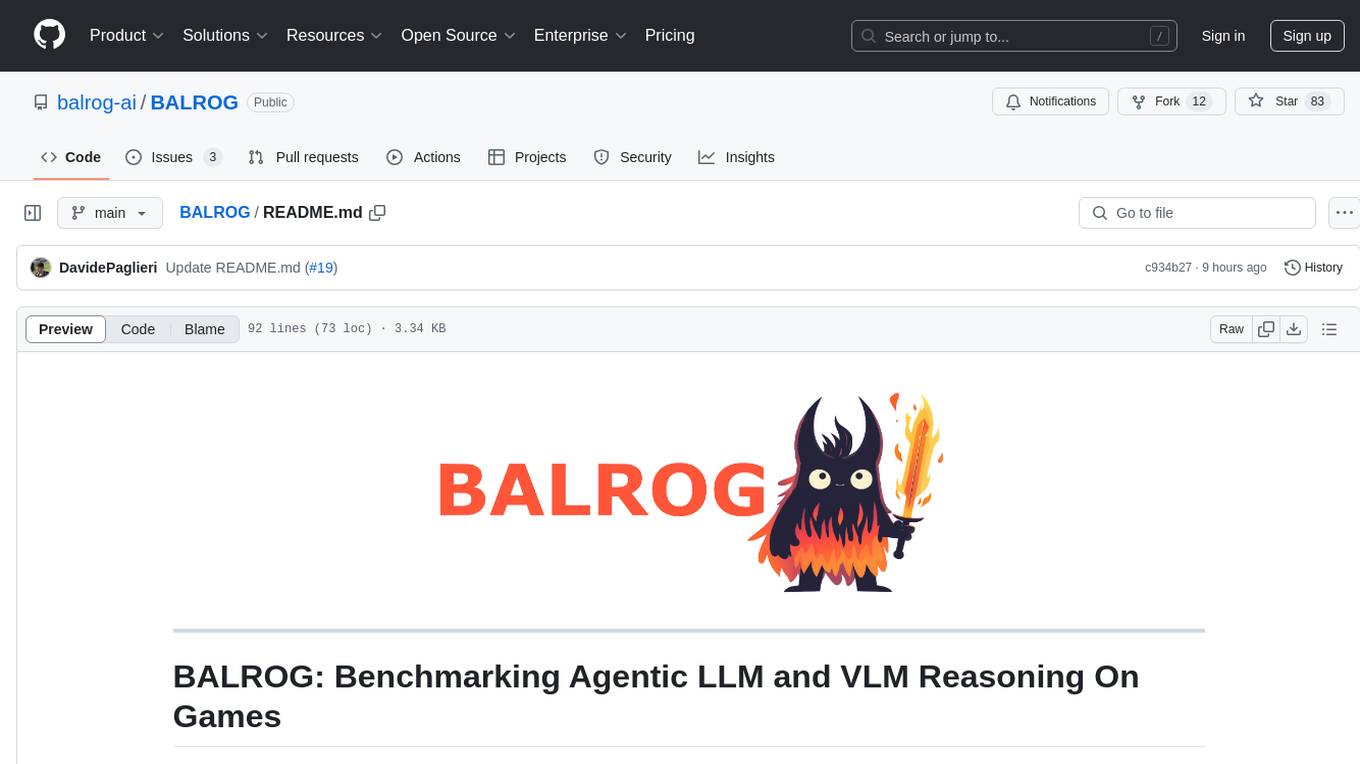
BALROG
BALROG is a benchmark tool designed to evaluate agentic Long-Longitudinal Memory (LLM) and Vision-Language Memory (VLM) capabilities using reinforcement learning environments. It provides a comprehensive assessment of agentic abilities, supports both language and vision-language models, integrates with popular AI APIs, and allows for easy integration of custom agents, new environments, and models.
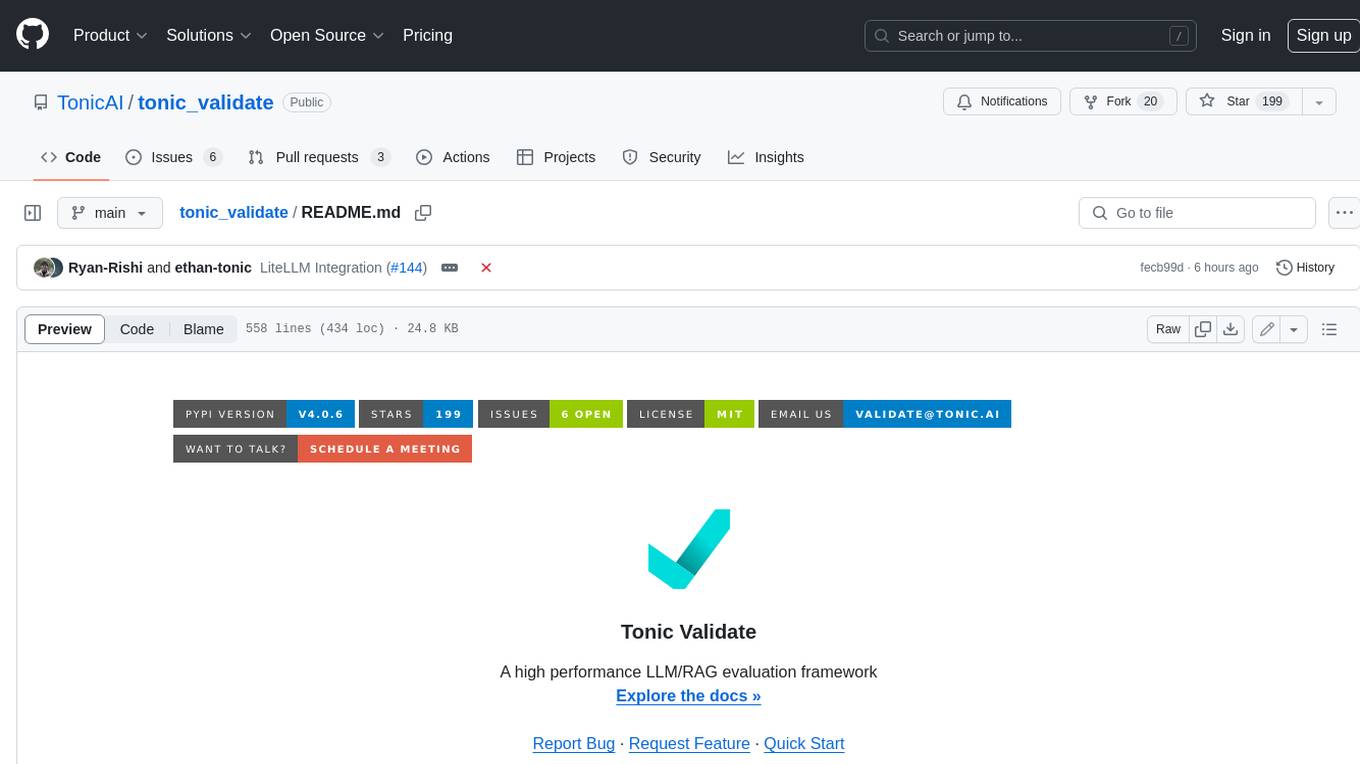
tonic_validate
Tonic Validate is a framework for the evaluation of LLM outputs, such as Retrieval Augmented Generation (RAG) pipelines. Validate makes it easy to evaluate, track, and monitor your LLM and RAG applications. Validate allows you to evaluate your LLM outputs through the use of our provided metrics which measure everything from answer correctness to LLM hallucination. Additionally, Validate has an optional UI to visualize your evaluation results for easy tracking and monitoring.
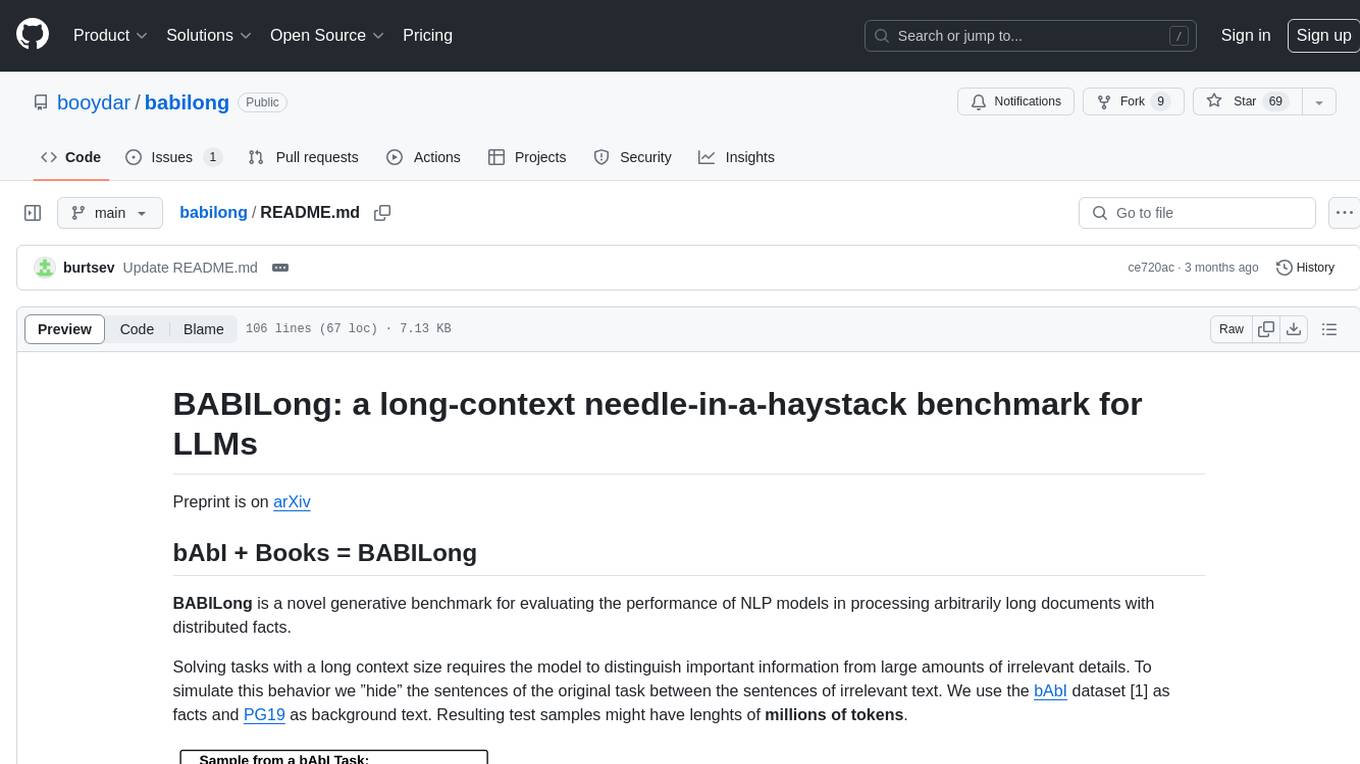
babilong
BABILong is a generative benchmark designed to evaluate the performance of NLP models in processing long documents with distributed facts. It consists of 20 tasks that simulate interactions between characters and objects in various locations, requiring models to distinguish important information from irrelevant details. The tasks vary in complexity and reasoning aspects, with test samples potentially containing millions of tokens. The benchmark aims to challenge and assess the capabilities of Large Language Models (LLMs) in handling complex, long-context information.
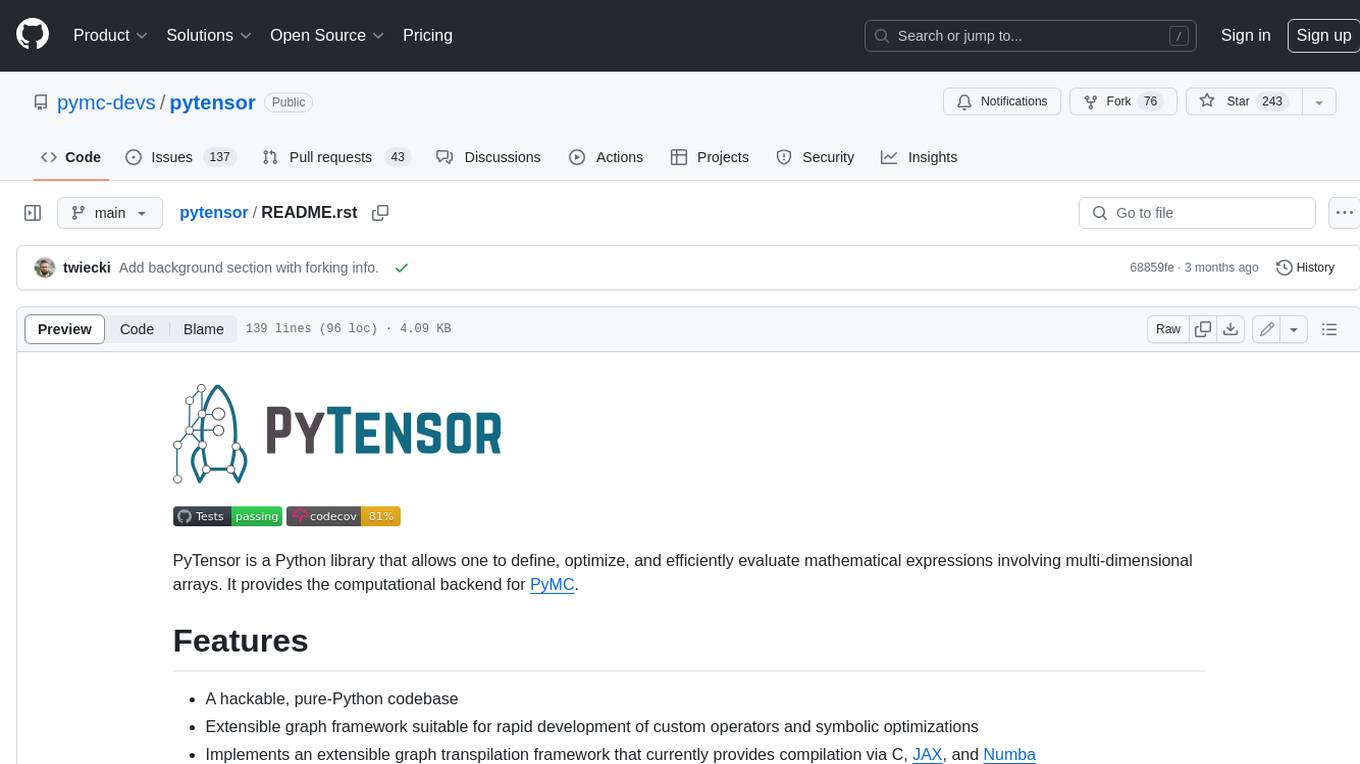
pytensor
PyTensor is a Python library that allows one to define, optimize, and efficiently evaluate mathematical expressions involving multi-dimensional arrays. It provides the computational backend for `PyMC
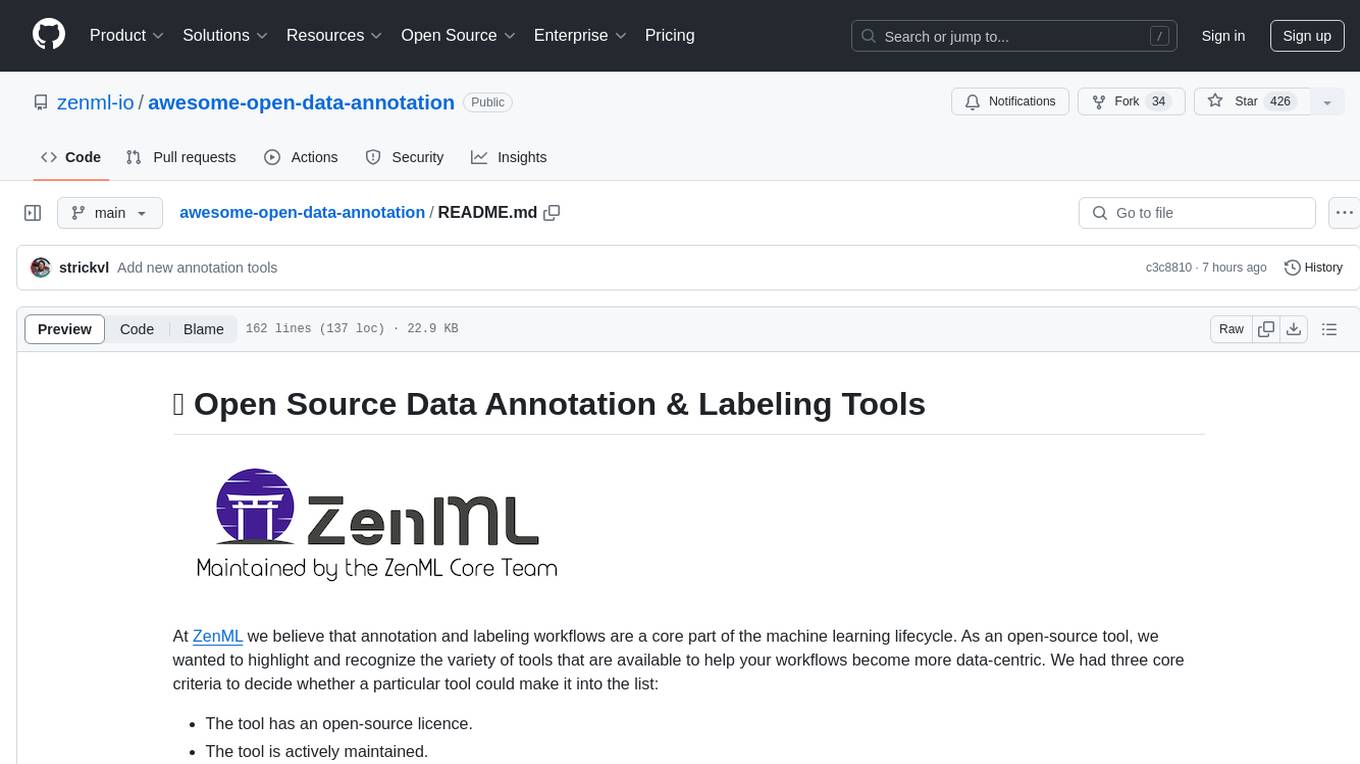
awesome-open-data-annotation
At ZenML, we believe in the importance of annotation and labeling workflows in the machine learning lifecycle. This repository showcases a curated list of open-source data annotation and labeling tools that are actively maintained and fit for purpose. The tools cover various domains such as multi-modal, text, images, audio, video, time series, and other data types. Users can contribute to the list and discover tools for tasks like named entity recognition, data annotation for machine learning, image and video annotation, text classification, sequence labeling, object detection, and more. The repository aims to help users enhance their data-centric workflows by leveraging these tools.
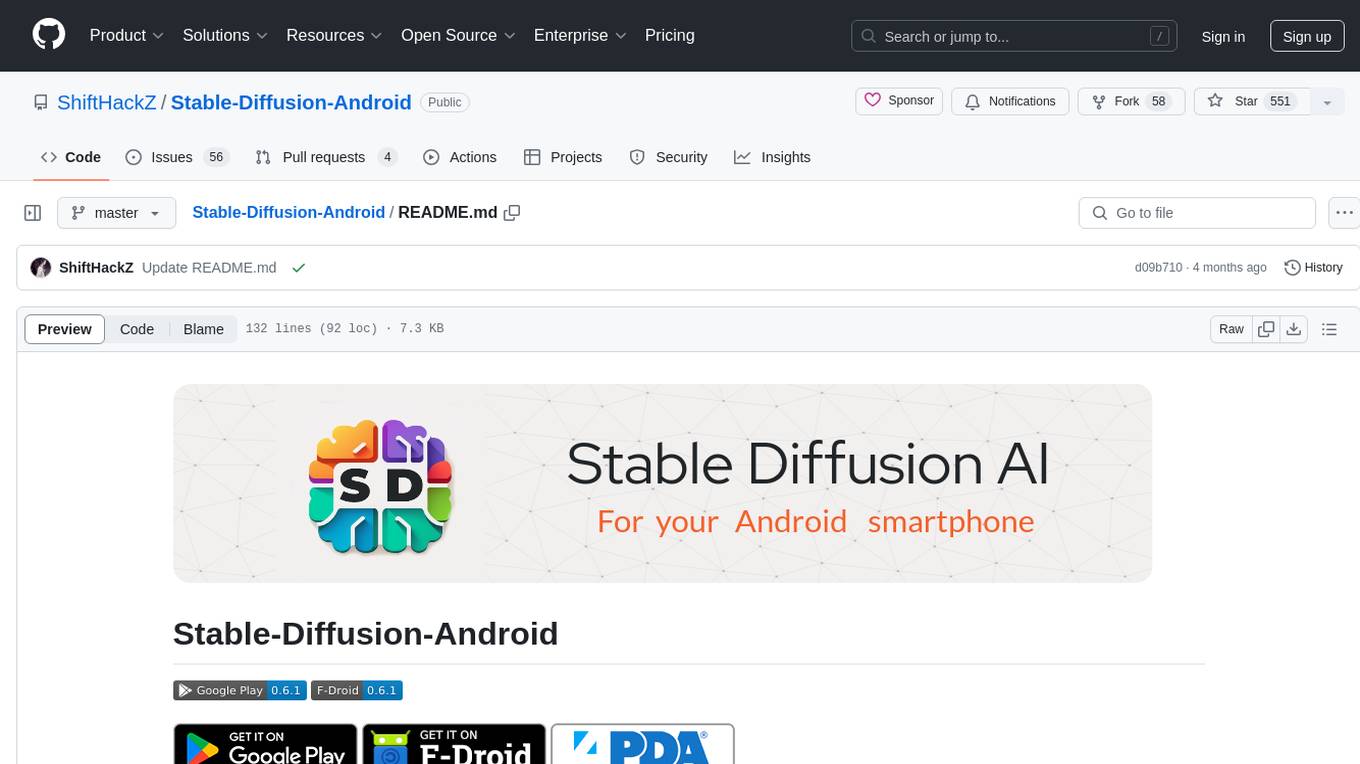
Stable-Diffusion-Android
Stable Diffusion AI is an easy-to-use app for generating images from text or other images. It allows communication with servers powered by various AI technologies like AI Horde, Hugging Face Inference API, OpenAI, StabilityAI, and LocalDiffusion. The app supports Txt2Img and Img2Img modes, positive and negative prompts, dynamic size and sampling methods, unique seed input, and batch image generation. Users can also inpaint images, select faces from gallery or camera, and export images. The app offers settings for server URL, SD Model selection, auto-saving images, and clearing cache.

lumigator
Lumigator is an open-source platform developed by Mozilla.ai to help users select the most suitable language model for their specific needs. It supports the evaluation of summarization tasks using sequence-to-sequence models such as BART and BERT, as well as causal models like GPT and Mistral. The platform aims to make model selection transparent, efficient, and empowering by providing a framework for comparing LLMs using task-specific metrics to evaluate how well a model fits a project's needs. Lumigator is in the early stages of development and plans to expand support to additional machine learning tasks and use cases in the future.
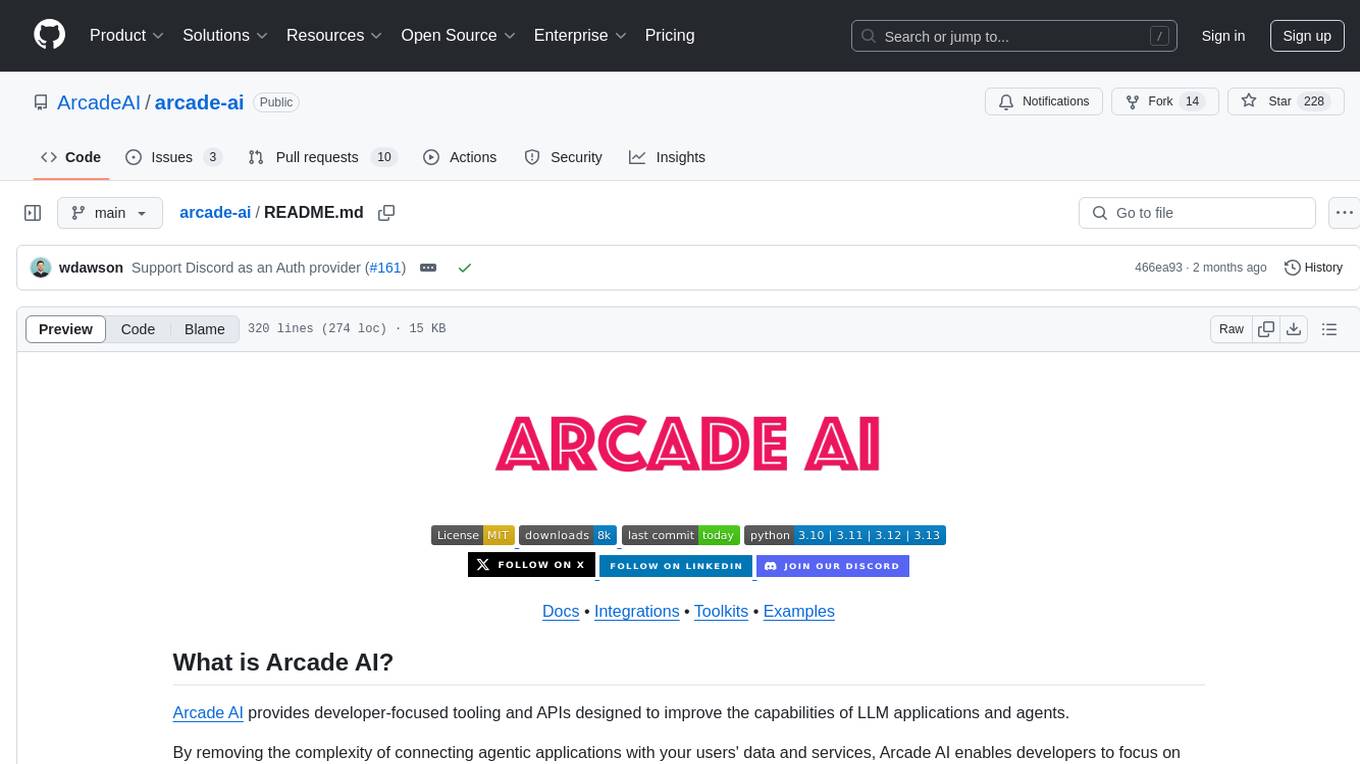
arcade-ai
Arcade AI is a developer-focused tooling and API platform designed to enhance the capabilities of LLM applications and agents. It simplifies the process of connecting agentic applications with user data and services, allowing developers to concentrate on building their applications. The platform offers prebuilt toolkits for interacting with various services, supports multiple authentication providers, and provides access to different language models. Users can also create custom toolkits and evaluate their tools using Arcade AI. Contributions are welcome, and self-hosting is possible with the provided documentation.
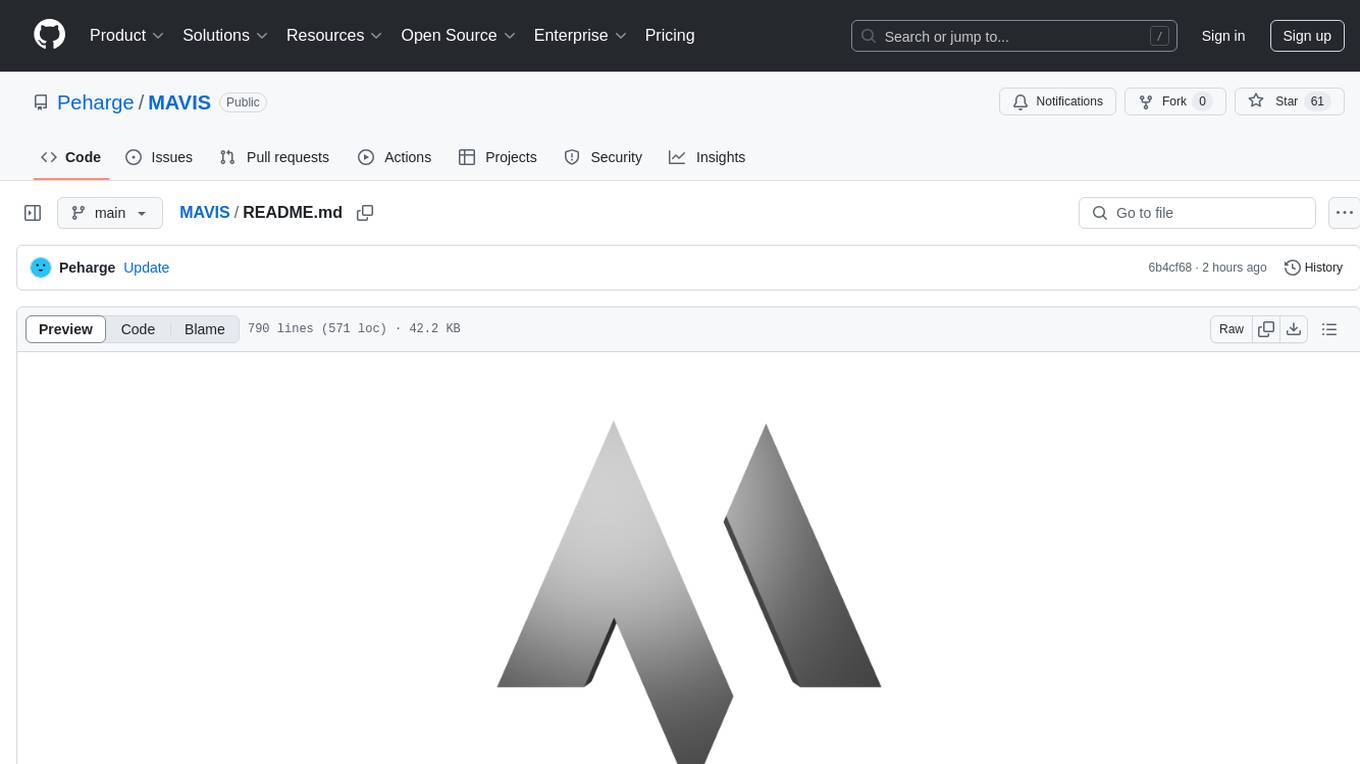
MAVIS
MAVIS (Math Visual Intelligent System) is an AI-driven application that allows users to analyze visual data such as images and generate interactive answers based on them. It can perform complex mathematical calculations, solve programming tasks, and create professional graphics. MAVIS supports Python for coding and frameworks like Matplotlib, Plotly, Seaborn, Altair, NumPy, Math, SymPy, and Pandas. It is designed to make projects more efficient and professional.
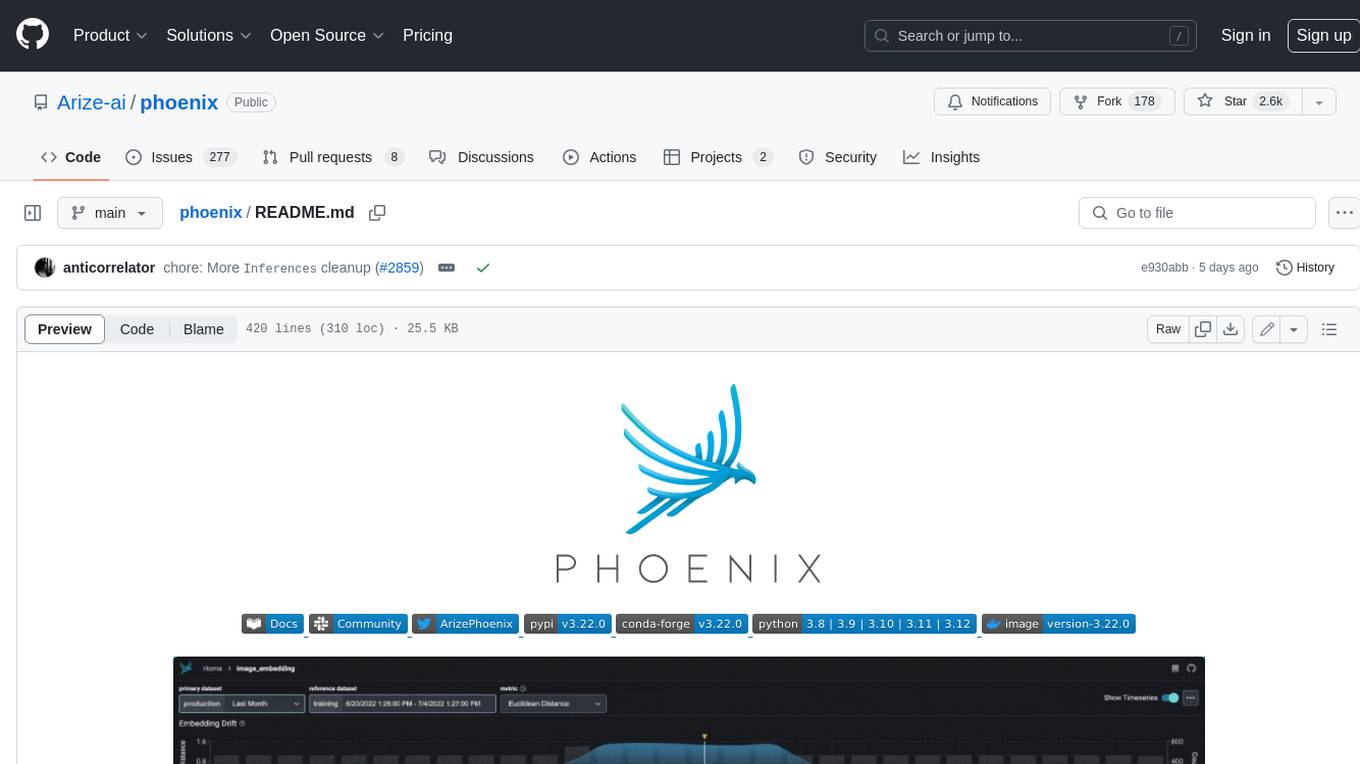
phoenix
Phoenix is a tool that provides MLOps and LLMOps insights at lightning speed with zero-config observability. It offers a notebook-first experience for monitoring models and LLM Applications by providing LLM Traces, LLM Evals, Embedding Analysis, RAG Analysis, and Structured Data Analysis. Users can trace through the execution of LLM Applications, evaluate generative models, explore embedding point-clouds, visualize generative application's search and retrieval process, and statistically analyze structured data. Phoenix is designed to help users troubleshoot problems related to retrieval, tool execution, relevance, toxicity, drift, and performance degradation.
20 - OpenAI Gpts
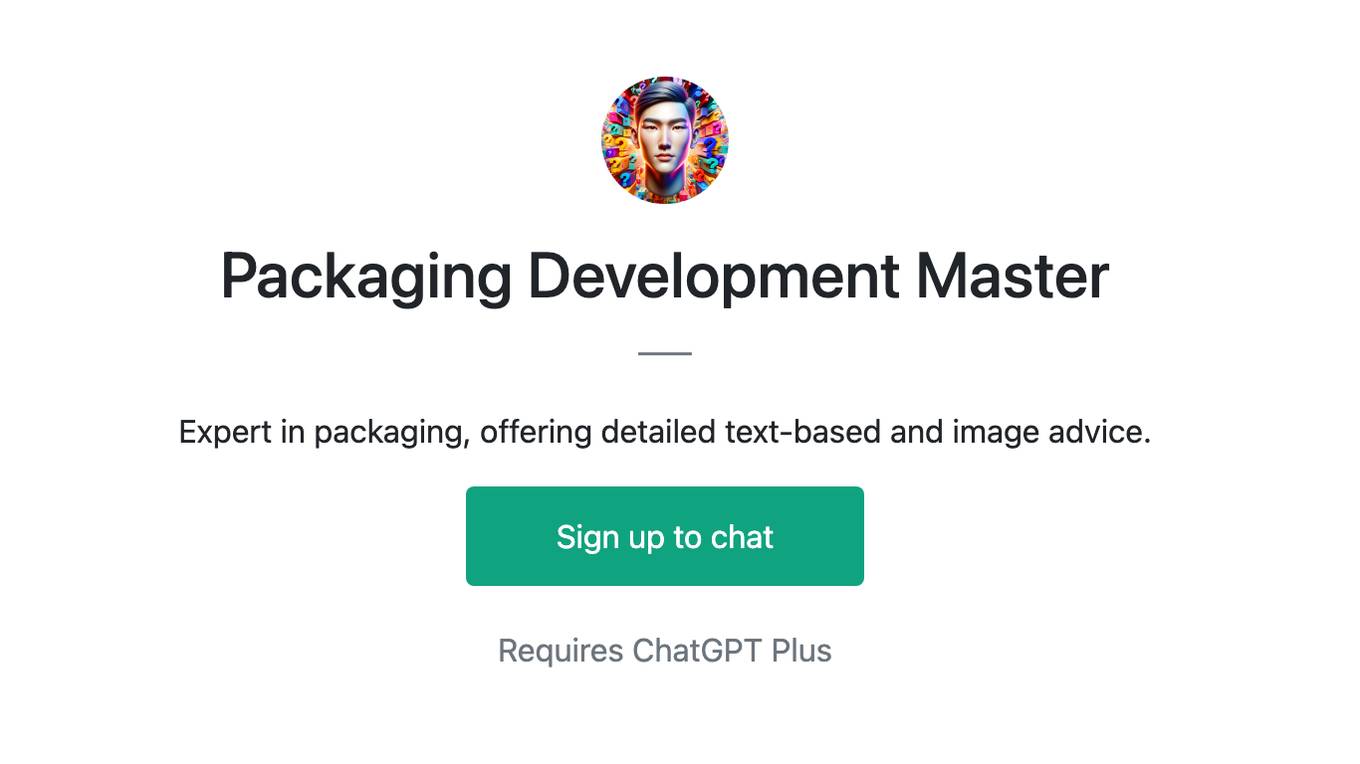
Packaging Development Master
Expert in packaging, offering detailed text-based and image advice.
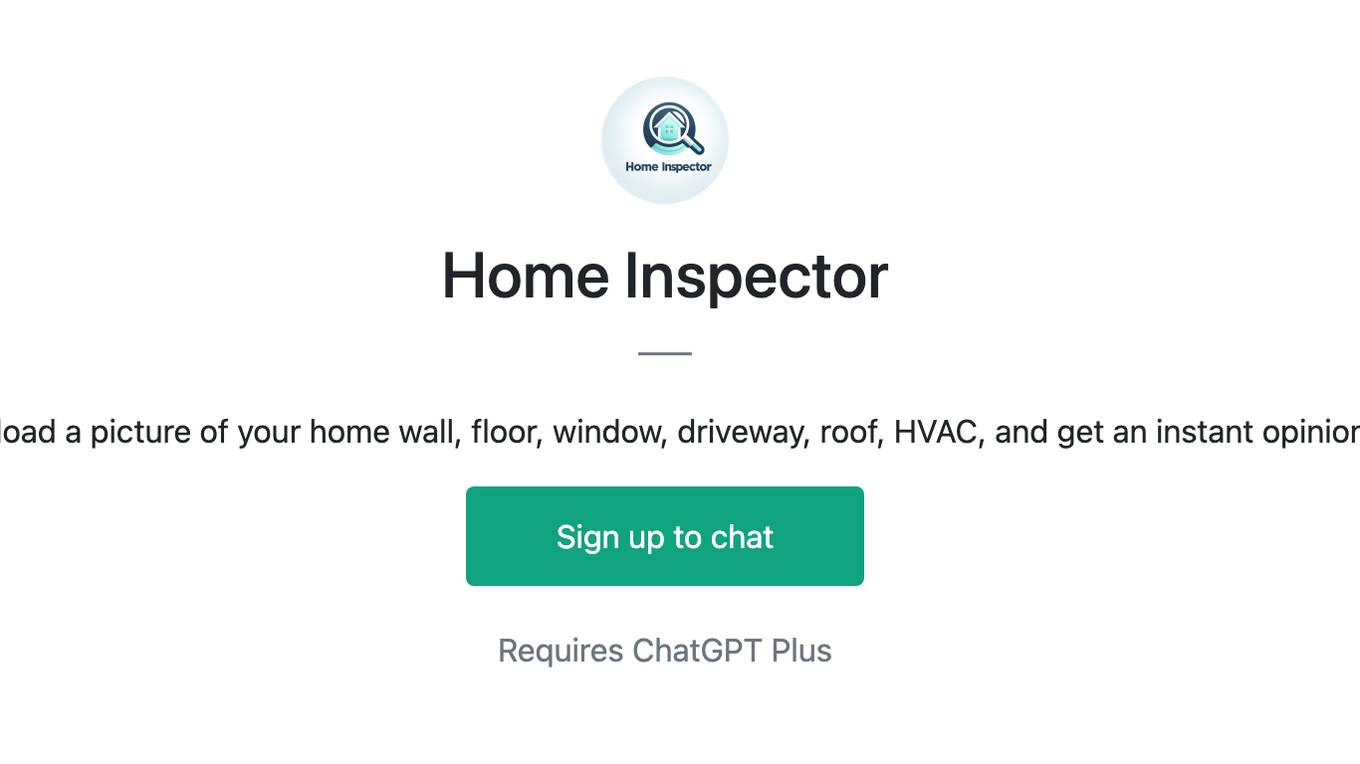
Home Inspector
Upload a picture of your home wall, floor, window, driveway, roof, HVAC, and get an instant opinion.
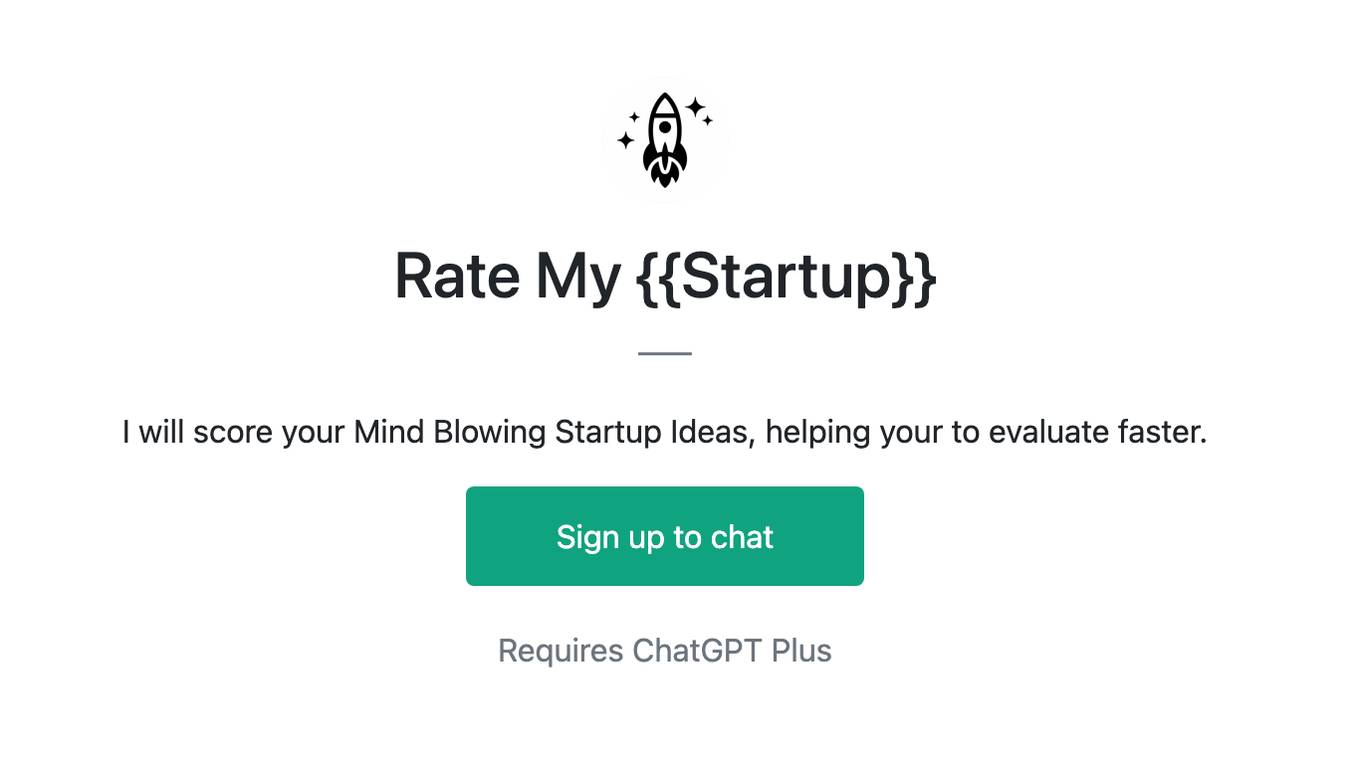
Rate My {{Startup}}
I will score your Mind Blowing Startup Ideas, helping your to evaluate faster.
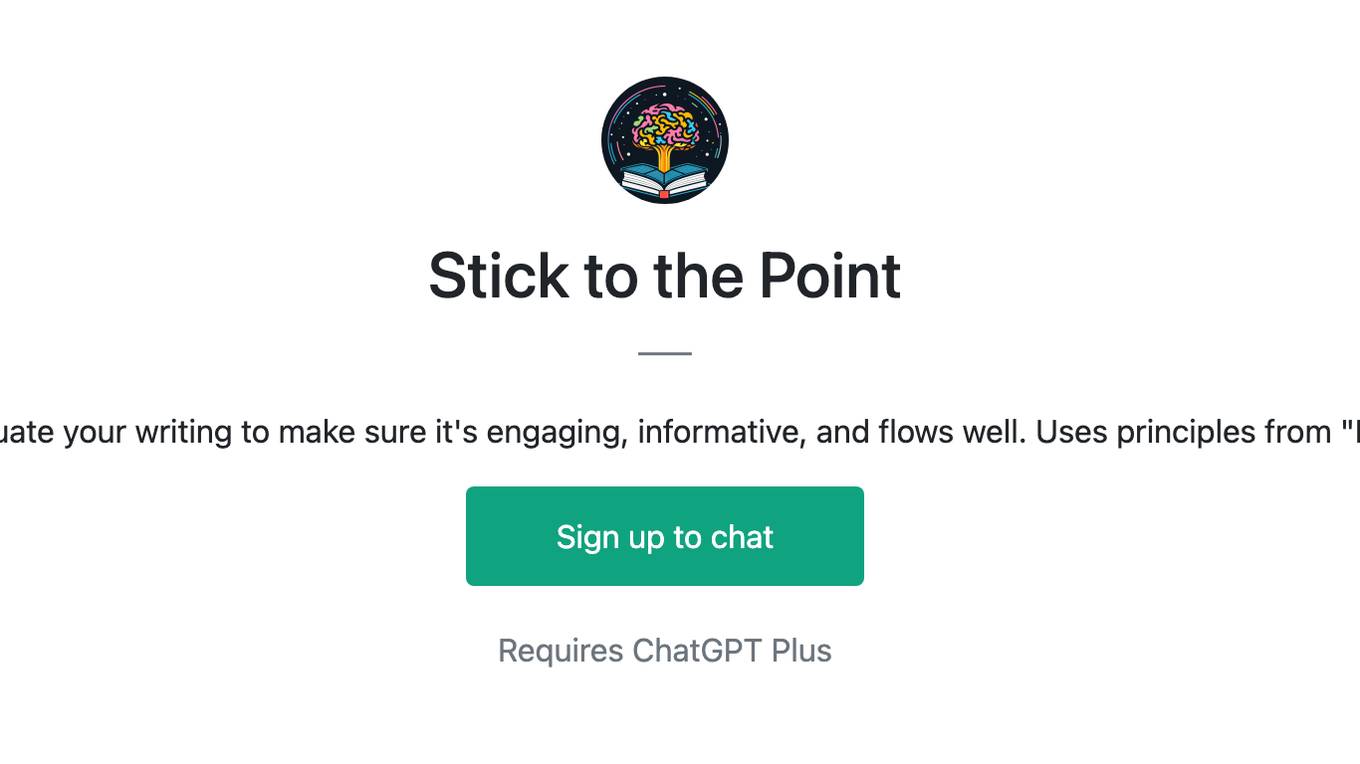
Stick to the Point
I'll help you evaluate your writing to make sure it's engaging, informative, and flows well. Uses principles from "Made to Stick"
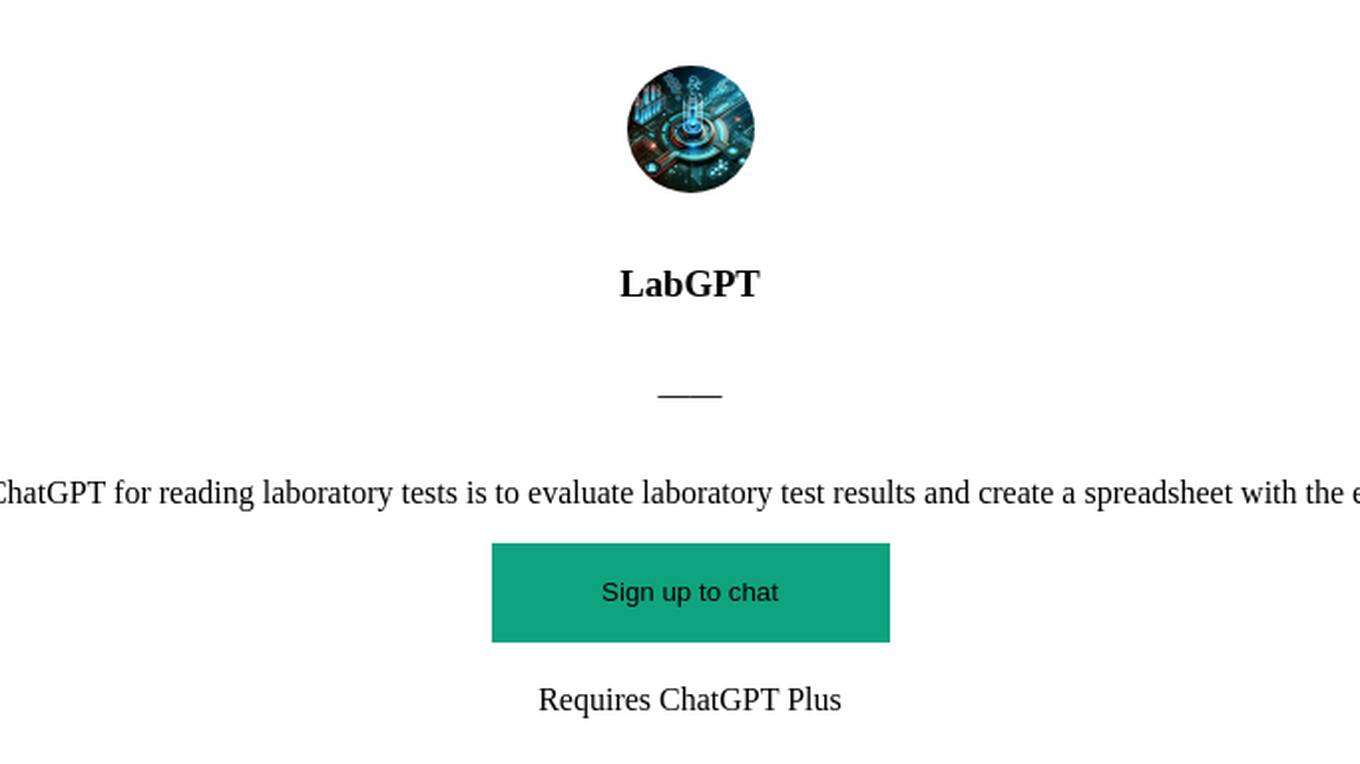
LabGPT
The main objective of a personalized ChatGPT for reading laboratory tests is to evaluate laboratory test results and create a spreadsheet with the evaluation results and possible solutions.
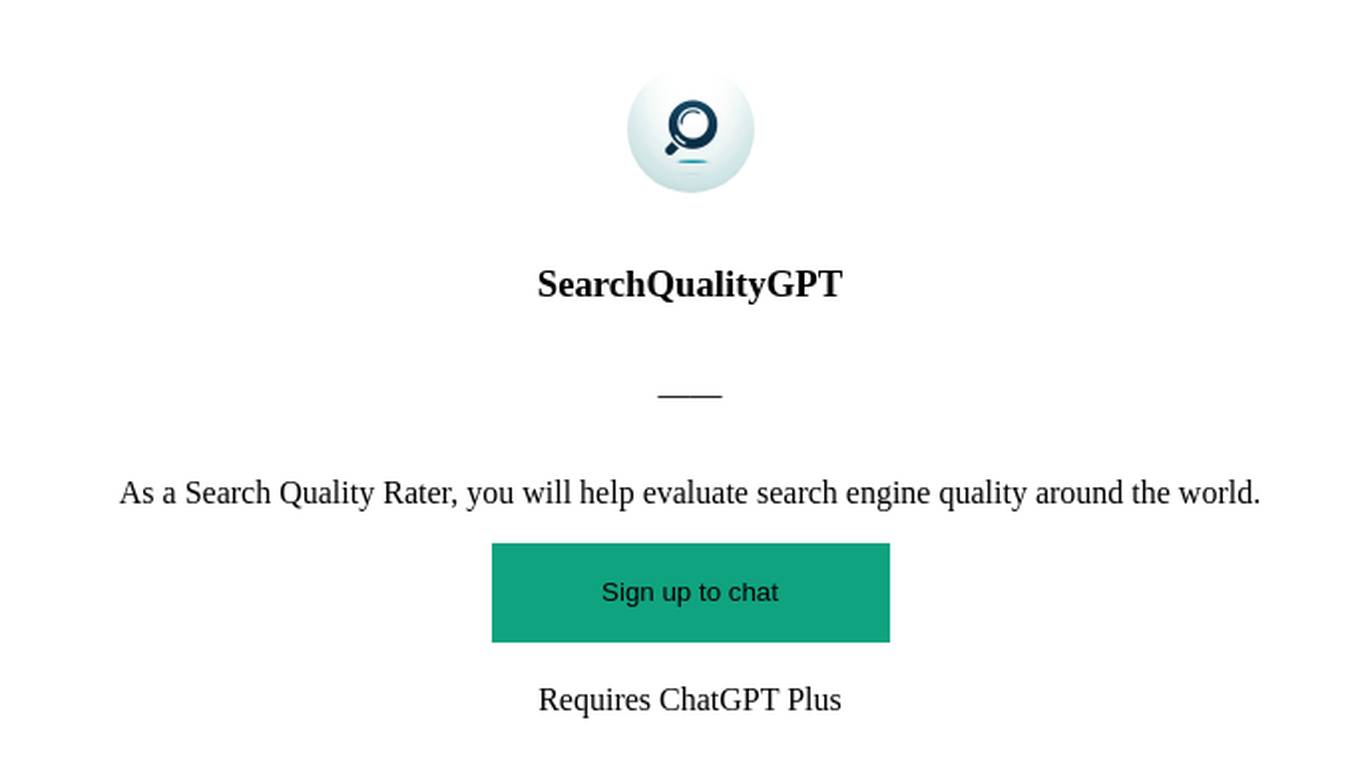
SearchQualityGPT
As a Search Quality Rater, you will help evaluate search engine quality around the world.

Business Model Canvas Strategist
Business Model Canvas Creator - Build and evaluate your business model
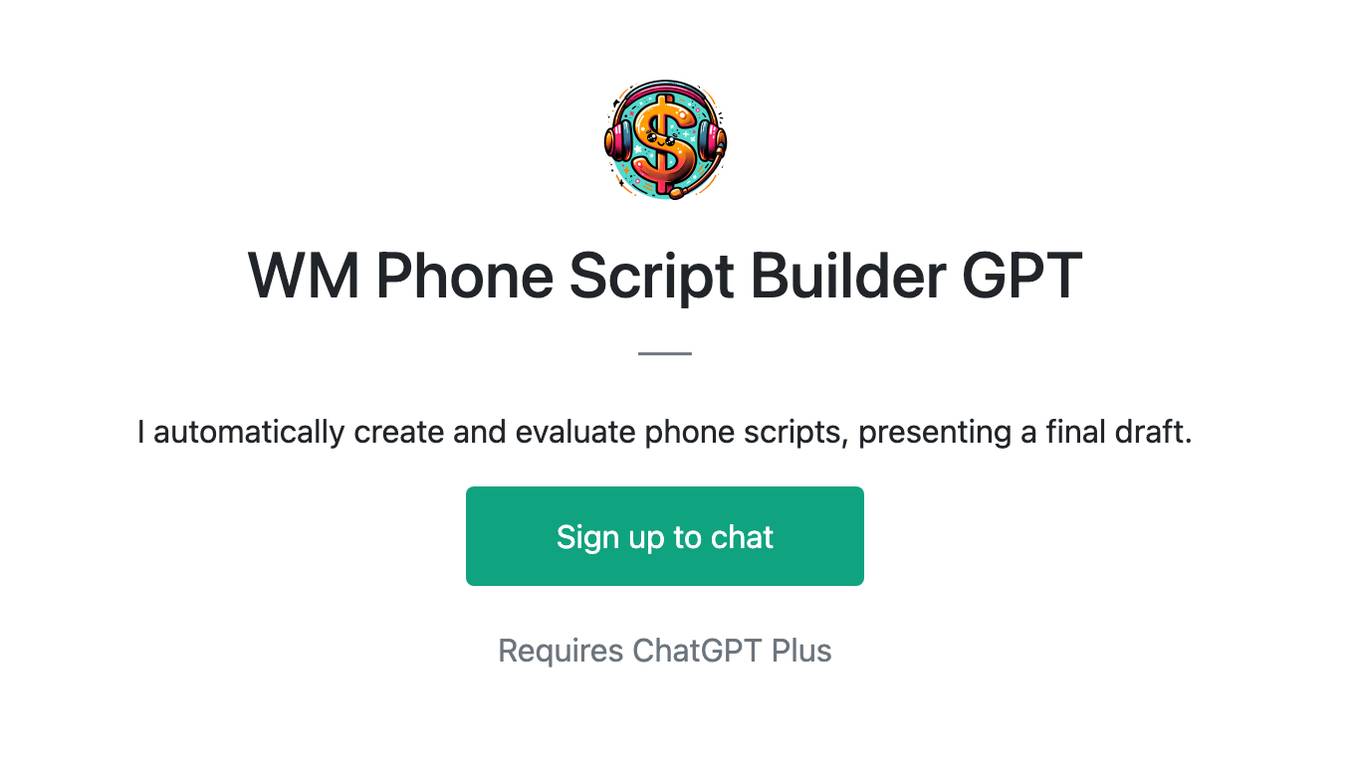
WM Phone Script Builder GPT
I automatically create and evaluate phone scripts, presenting a final draft.
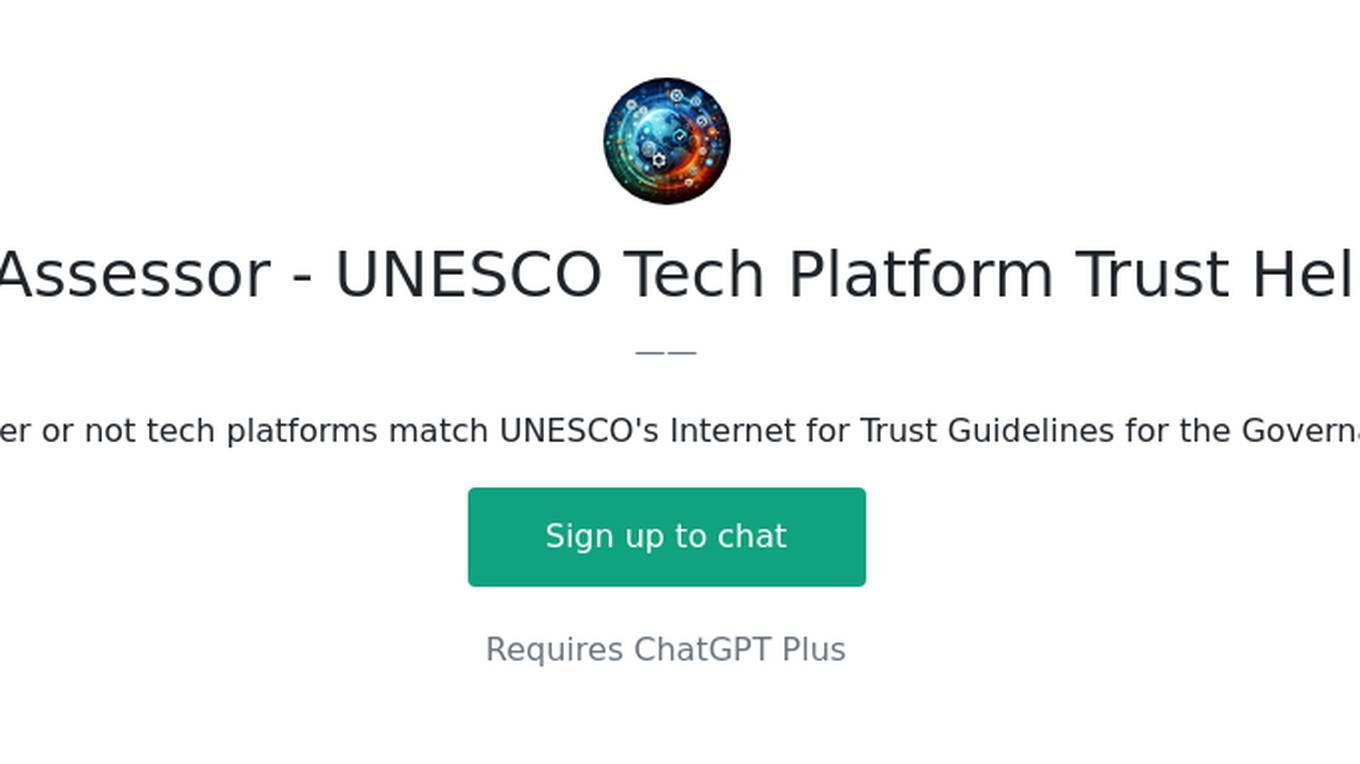
I4T Assessor - UNESCO Tech Platform Trust Helper
Helps you evaluate whether or not tech platforms match UNESCO's Internet for Trust Guidelines for the Governance of Digital Platforms
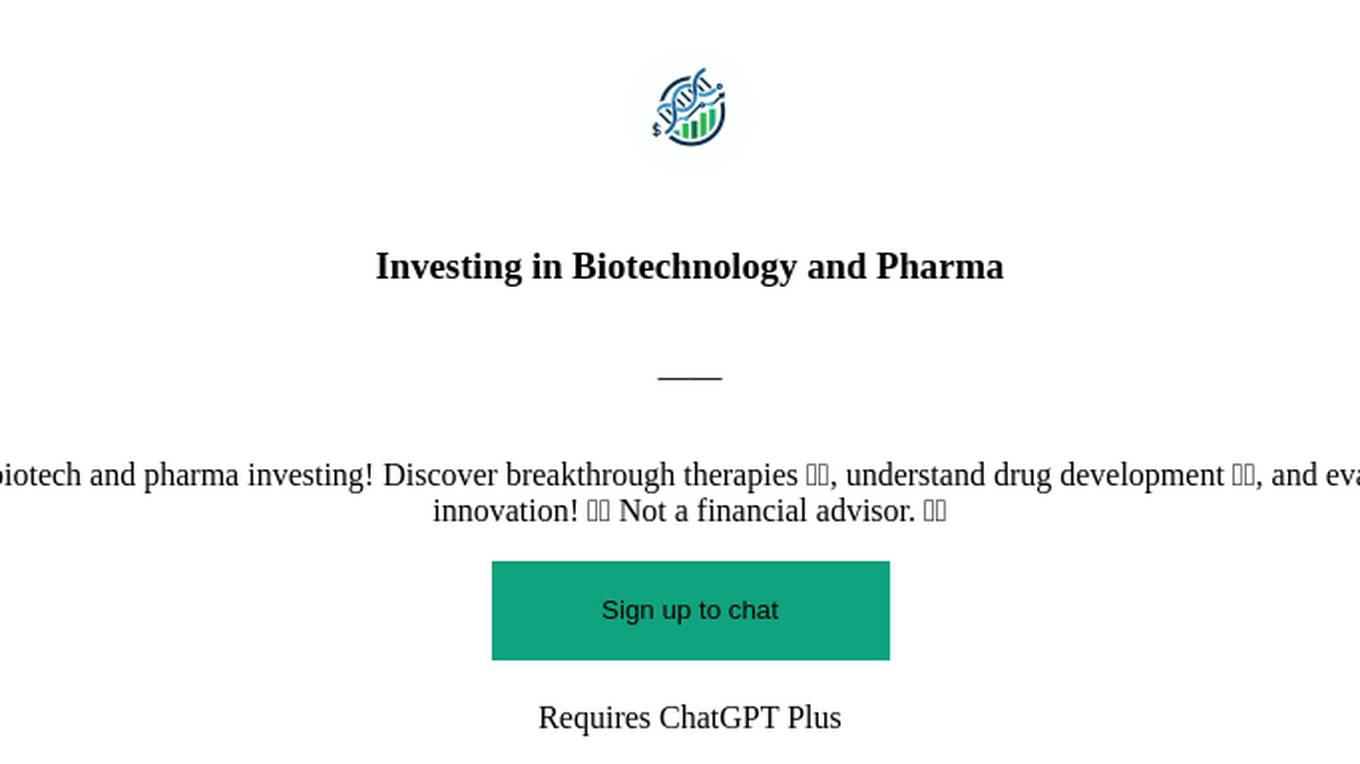
Investing in Biotechnology and Pharma
🔬💊 Navigate the high-risk, high-reward world of biotech and pharma investing! Discover breakthrough therapies 🧬📈, understand drug development 🧪📊, and evaluate investment opportunities 🚀💰. Invest wisely in innovation! 💡🌐 Not a financial advisor. 🚫💼
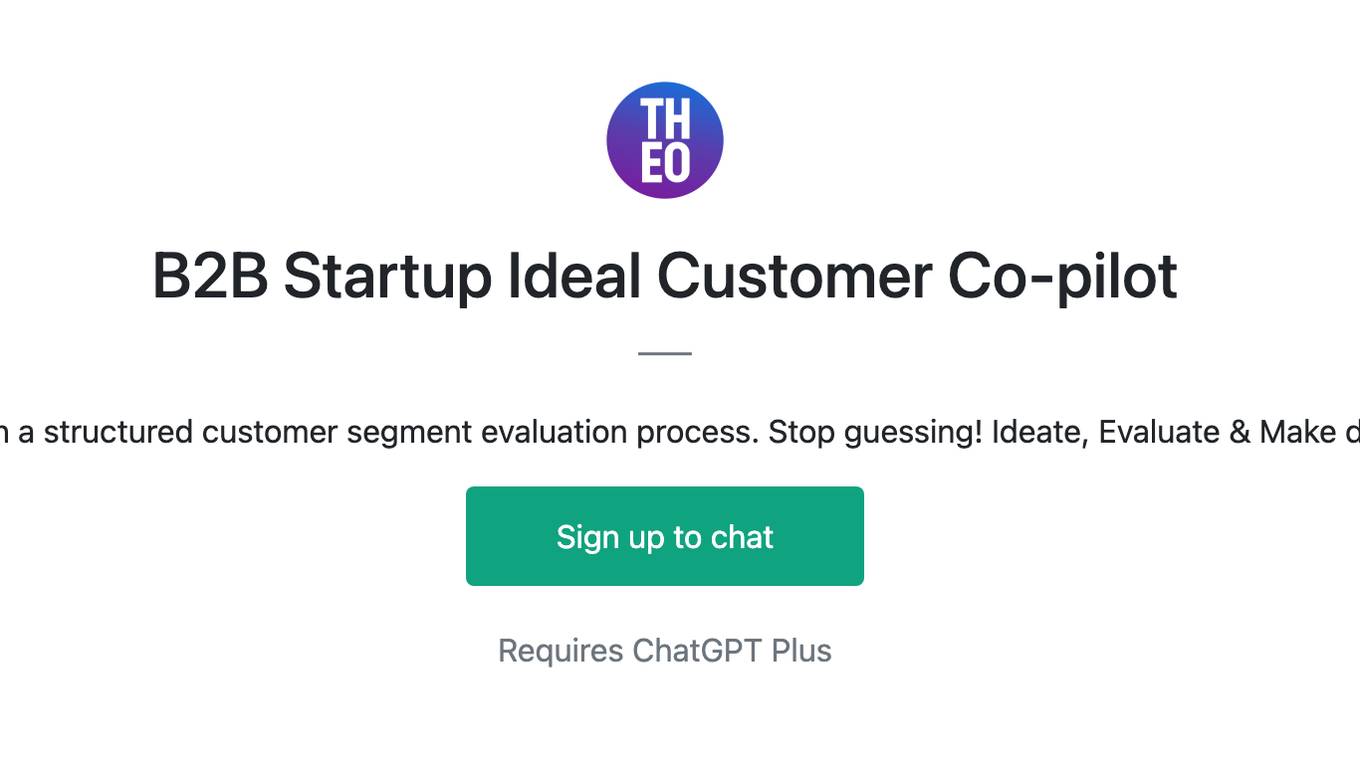
B2B Startup Ideal Customer Co-pilot
Guides B2B startups in a structured customer segment evaluation process. Stop guessing! Ideate, Evaluate & Make data-driven decision.
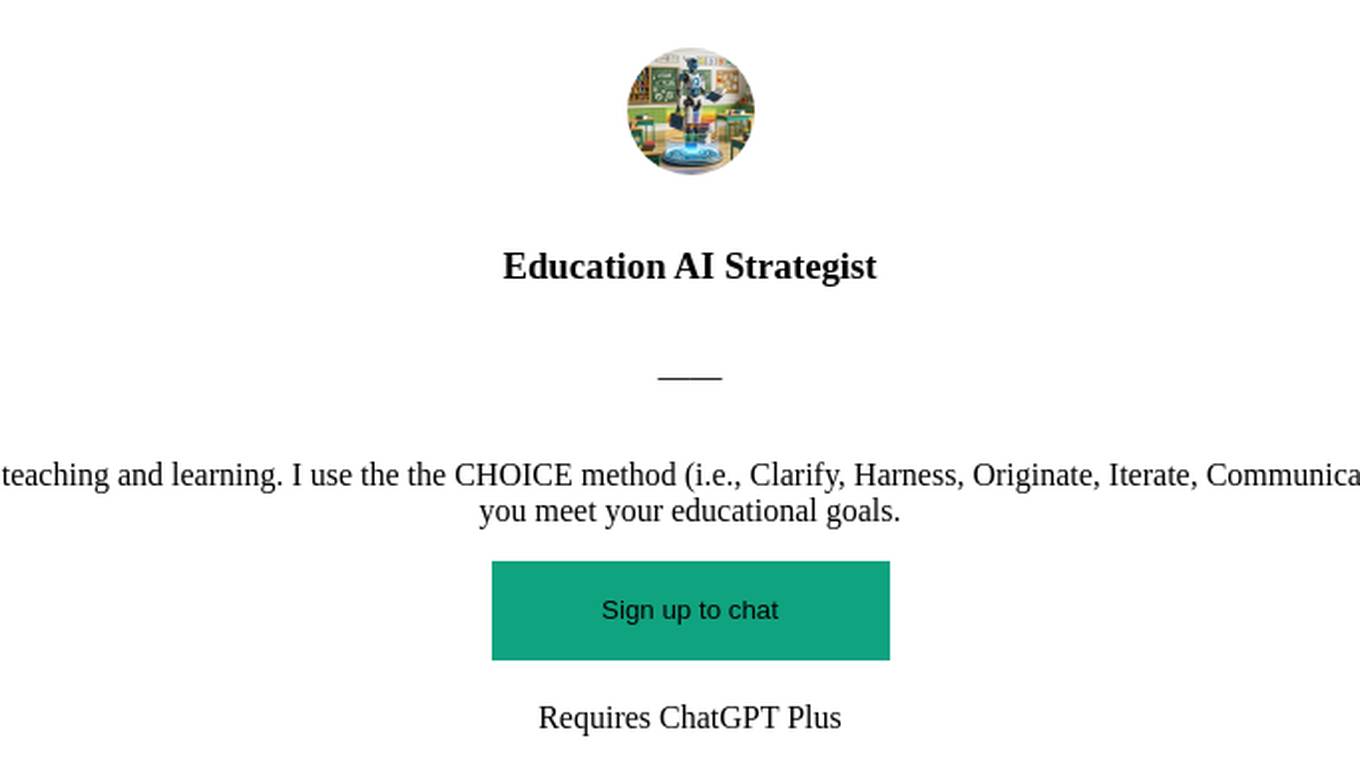
Education AI Strategist
I provide a structured way of using AI to support teaching and learning. I use the the CHOICE method (i.e., Clarify, Harness, Originate, Iterate, Communicate, Evaluate) to ensure that your use of AI can help you meet your educational goals.
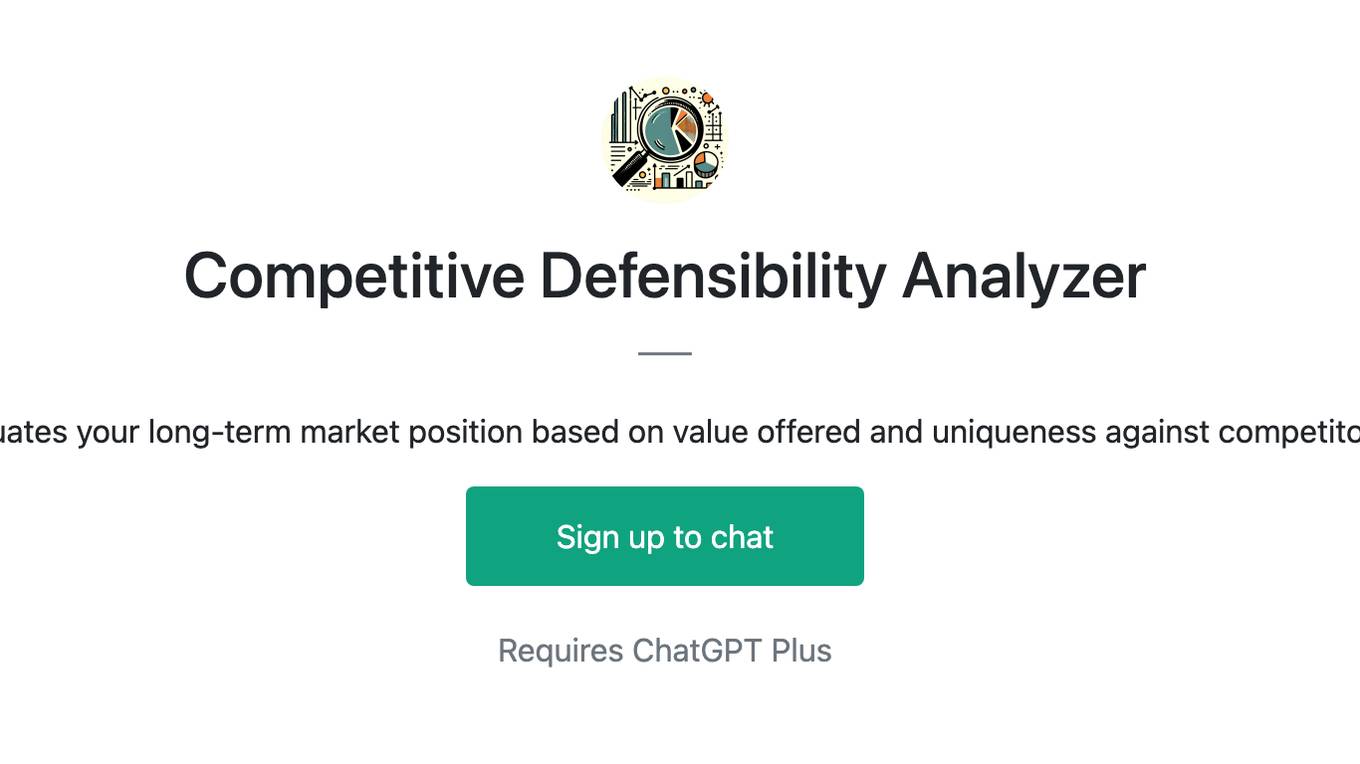
Competitive Defensibility Analyzer
Evaluates your long-term market position based on value offered and uniqueness against competitors.
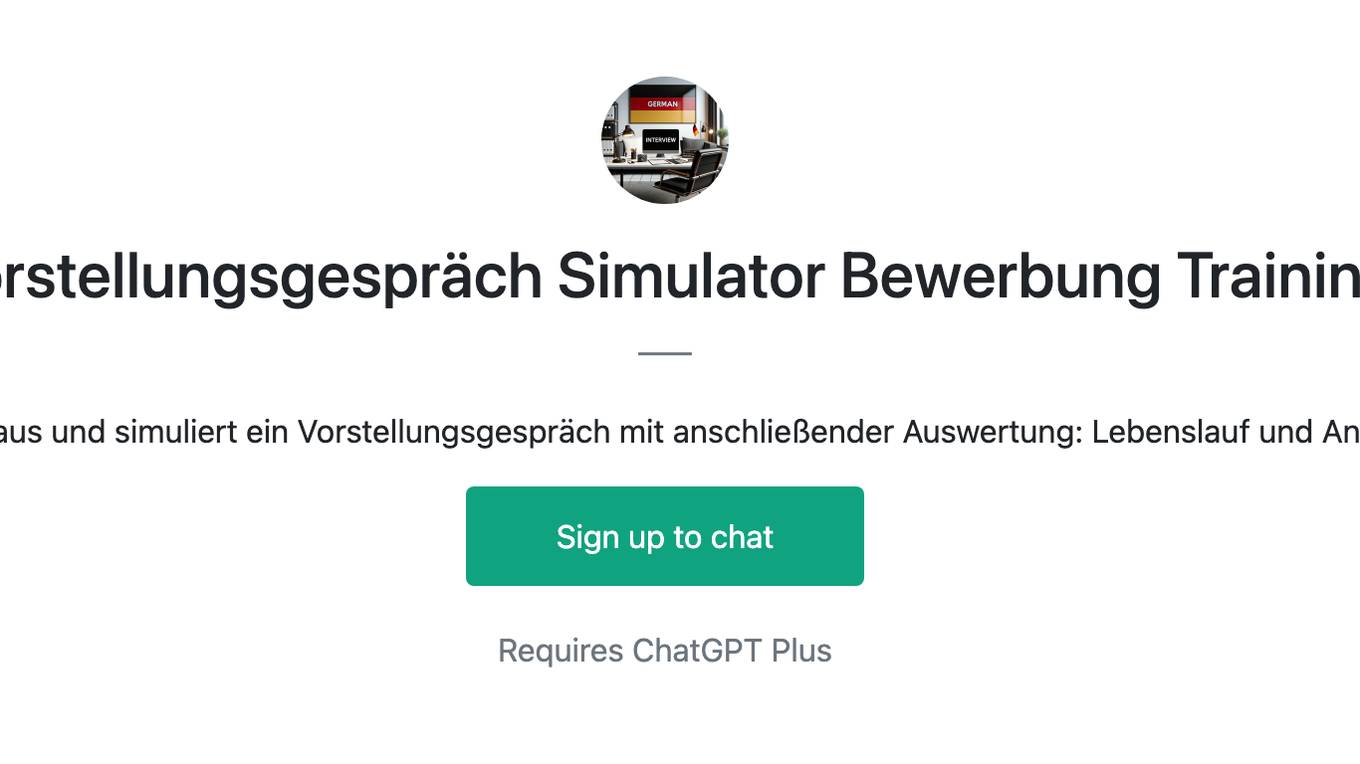
Vorstellungsgespräch Simulator Bewerbung Training
Wertet Lebenslauf und Stellenanzeige aus und simuliert ein Vorstellungsgespräch mit anschließender Auswertung: Lebenslauf und Anzeige einfach hochladen und starten.
